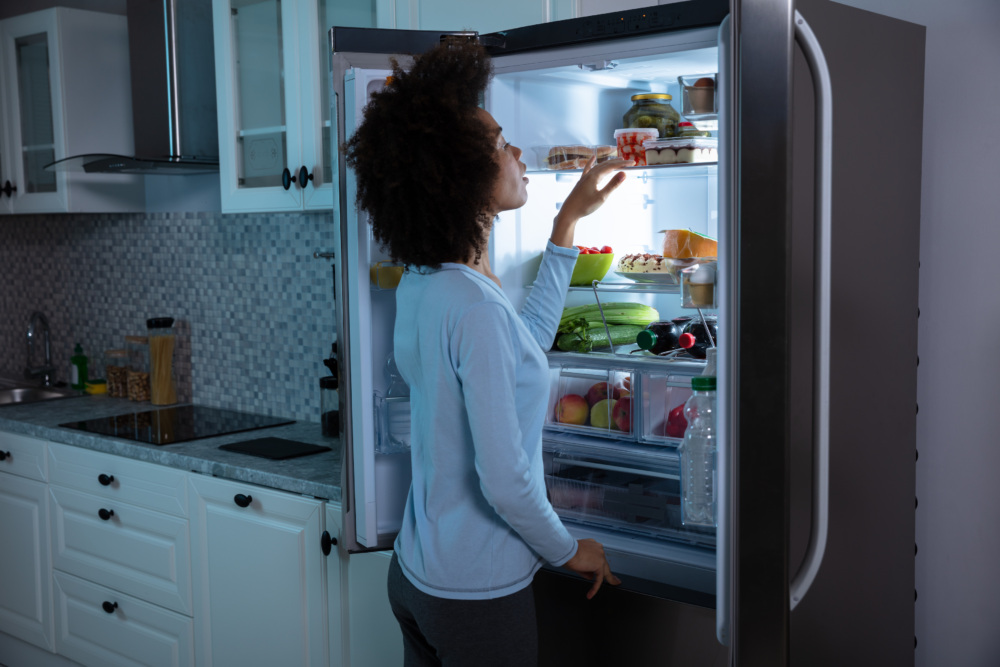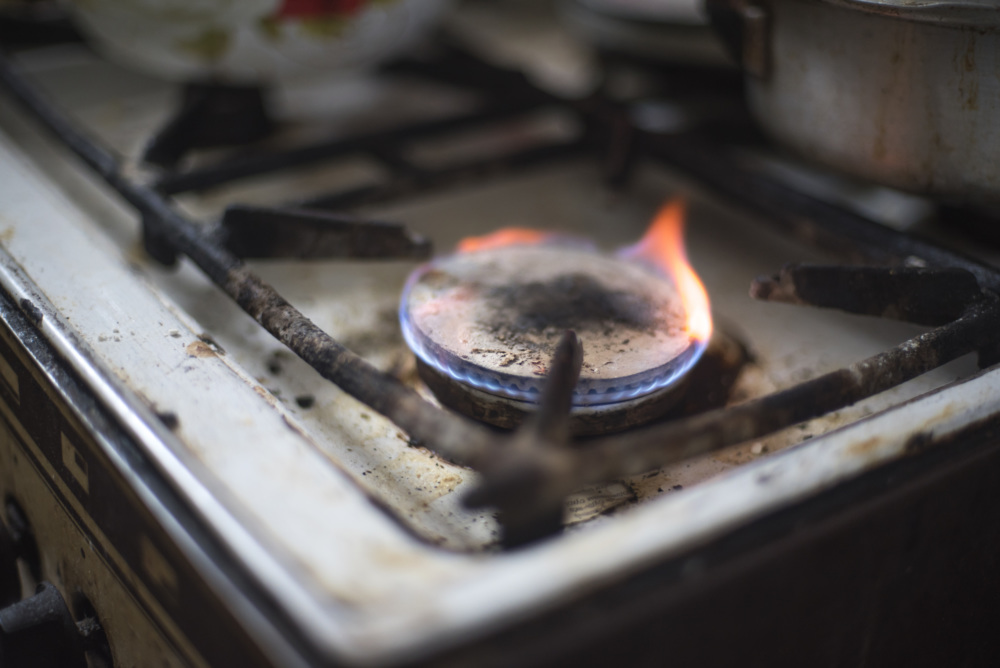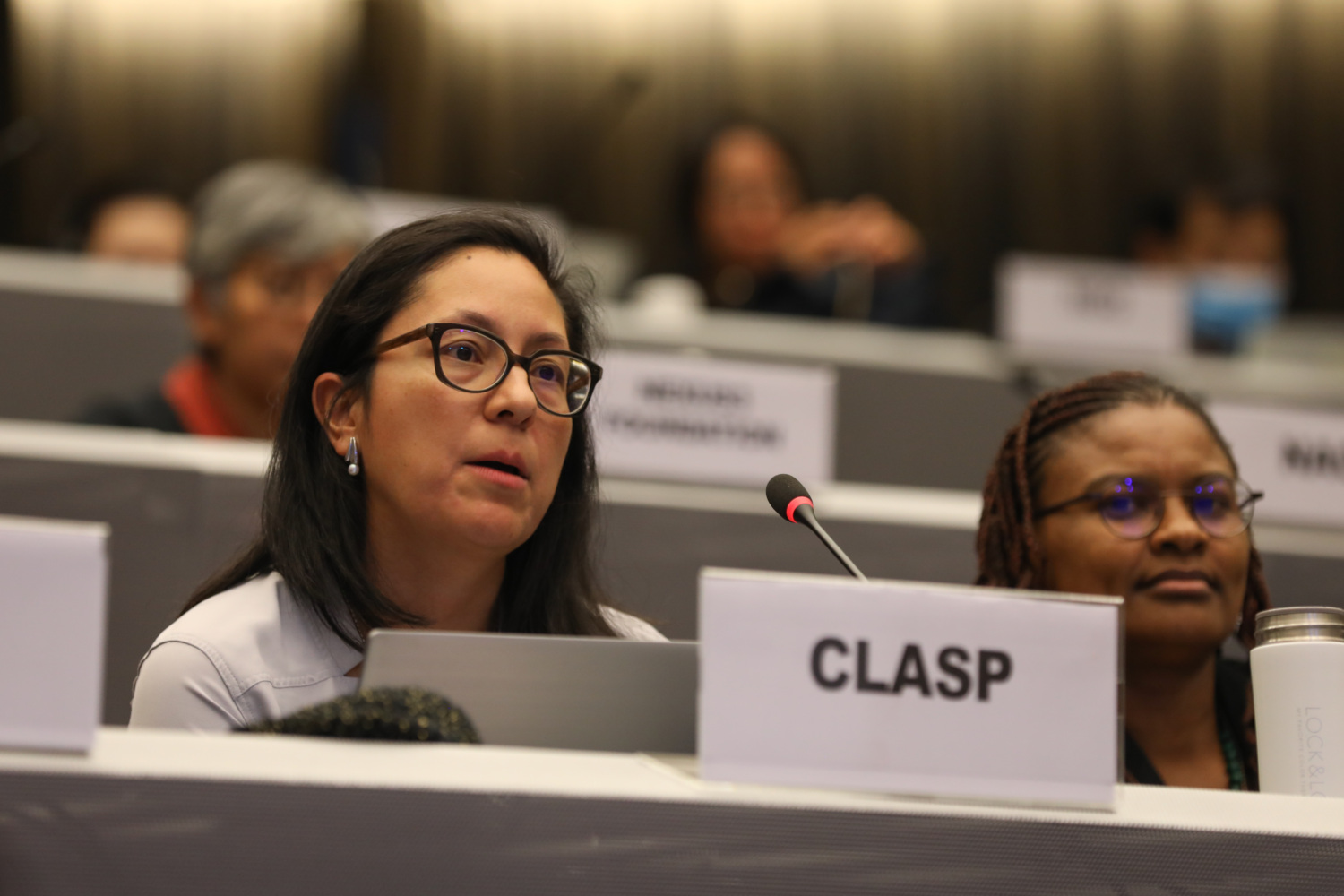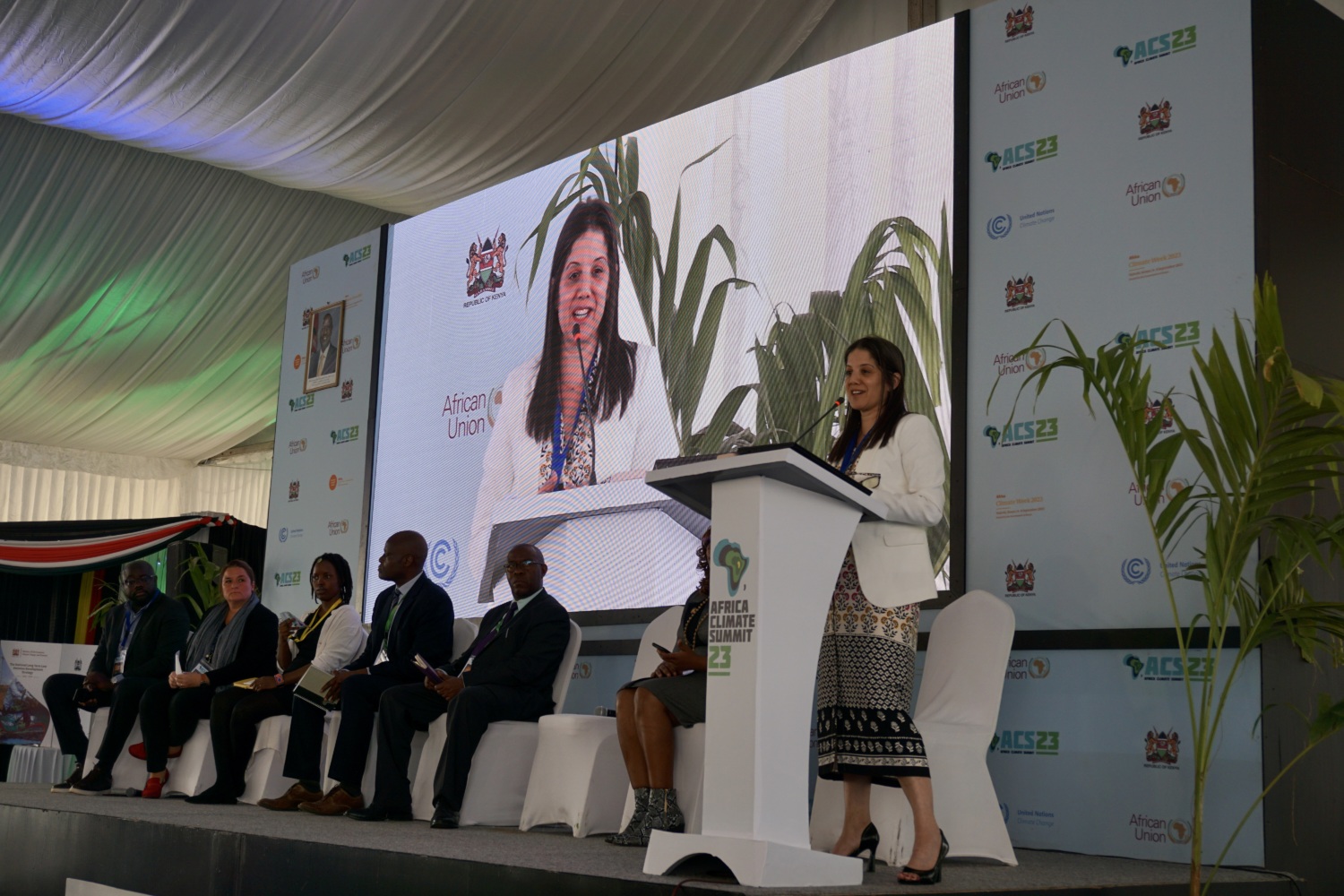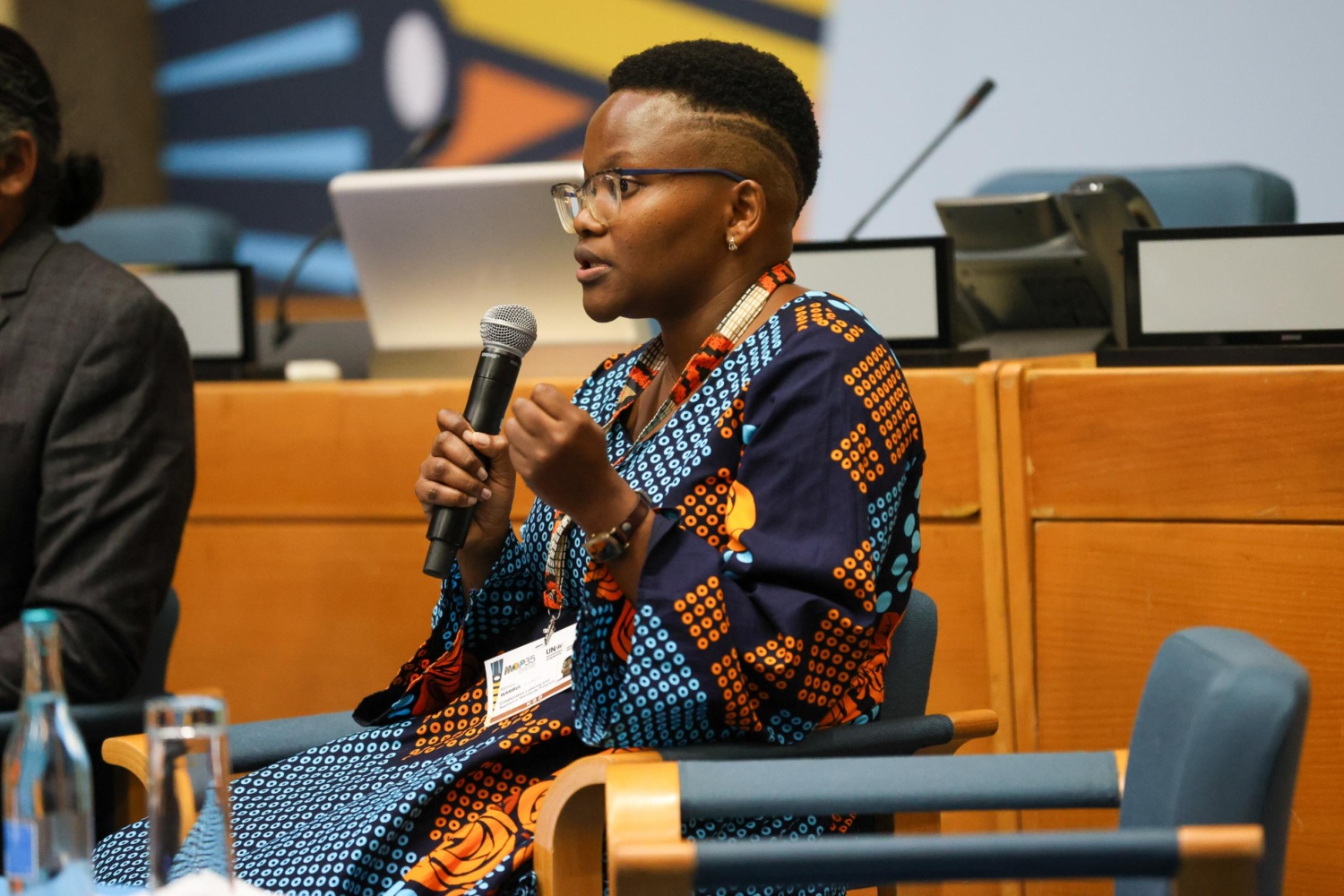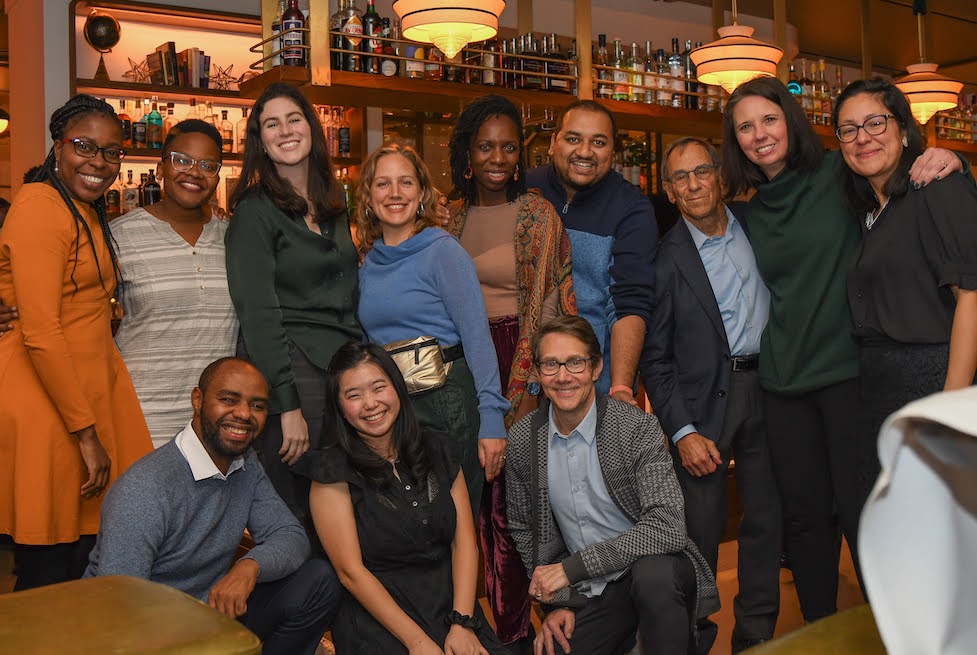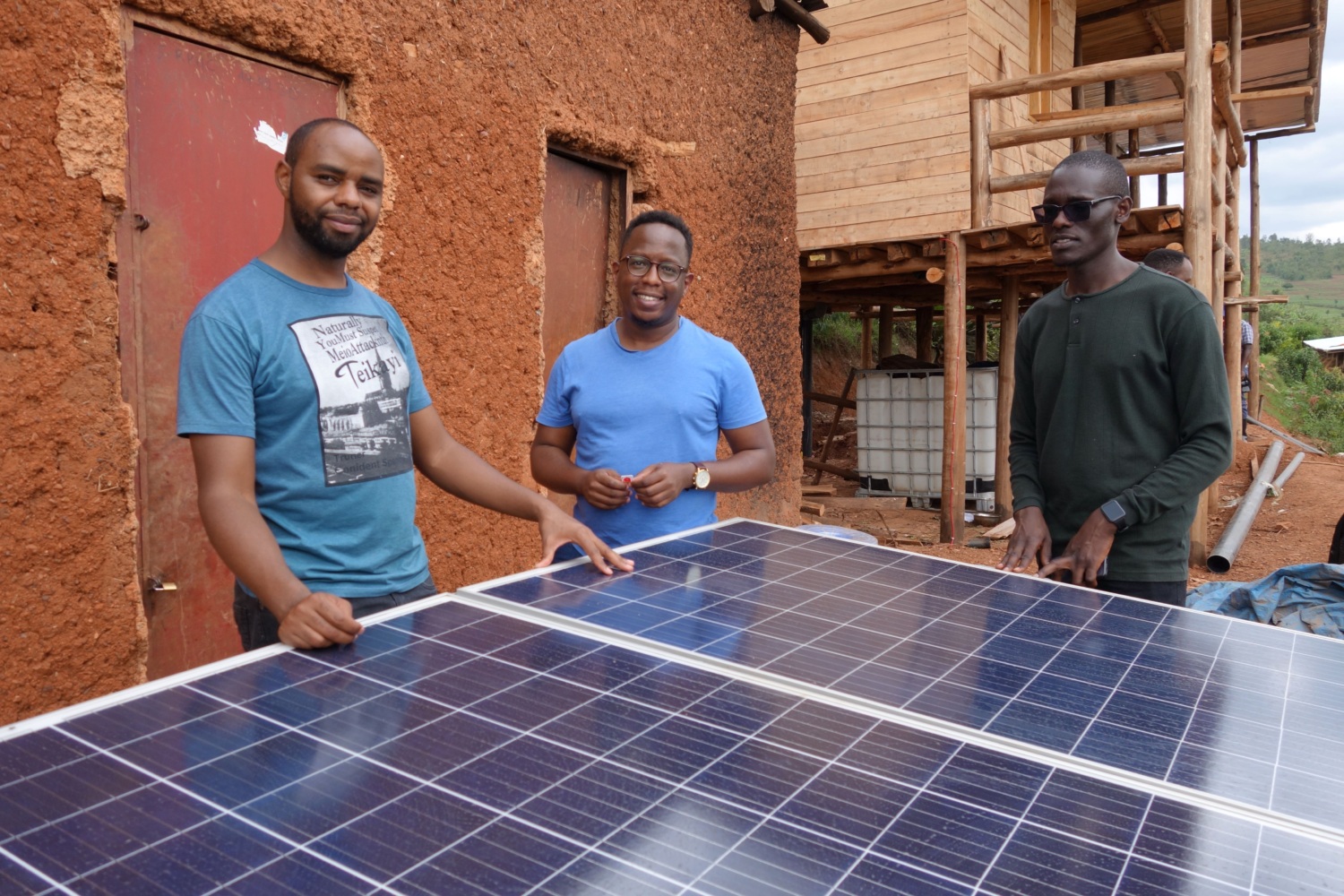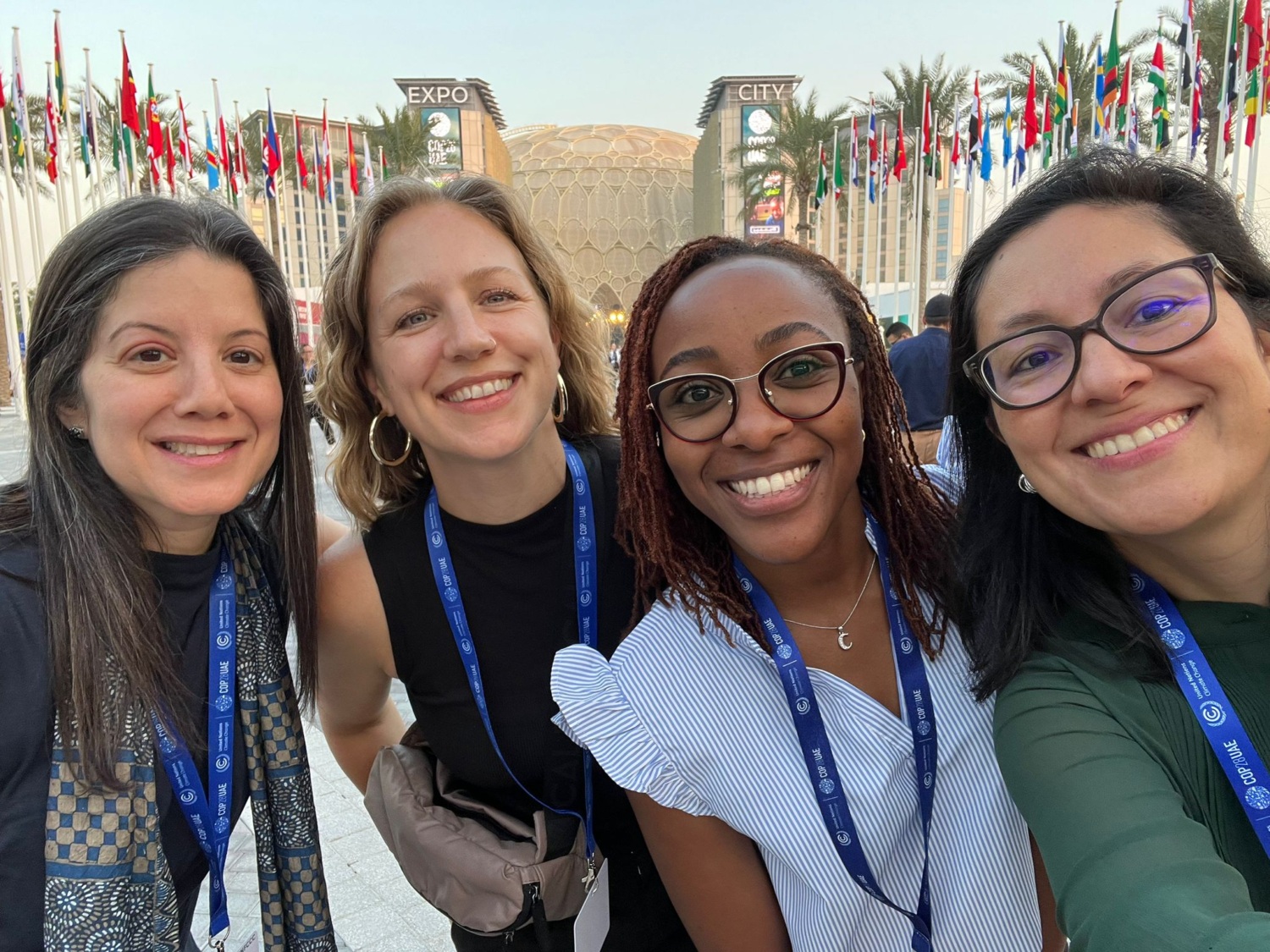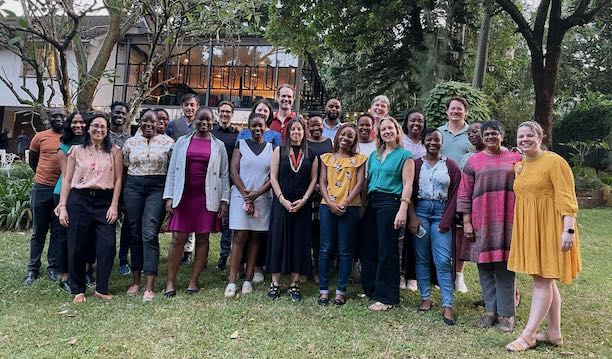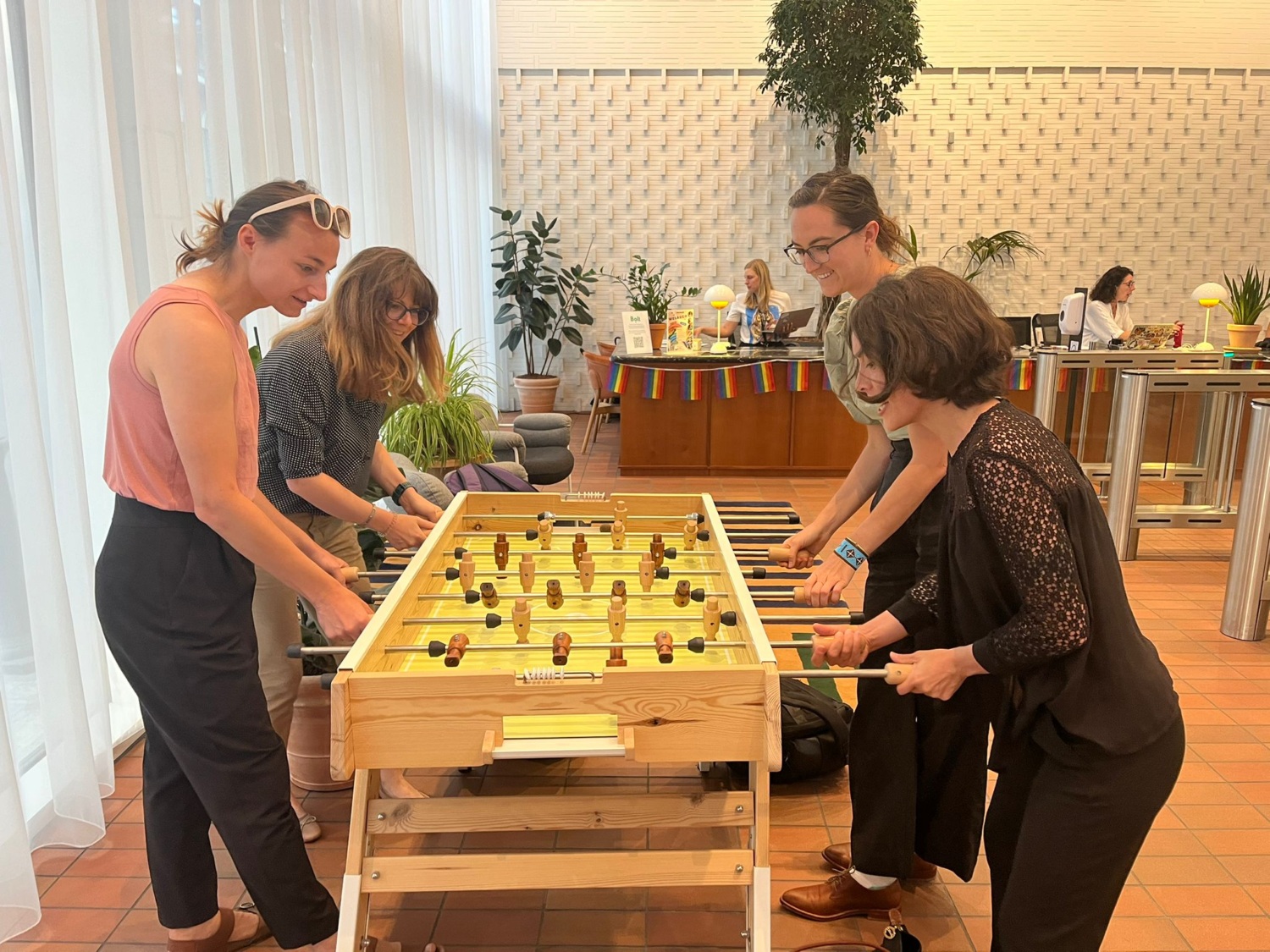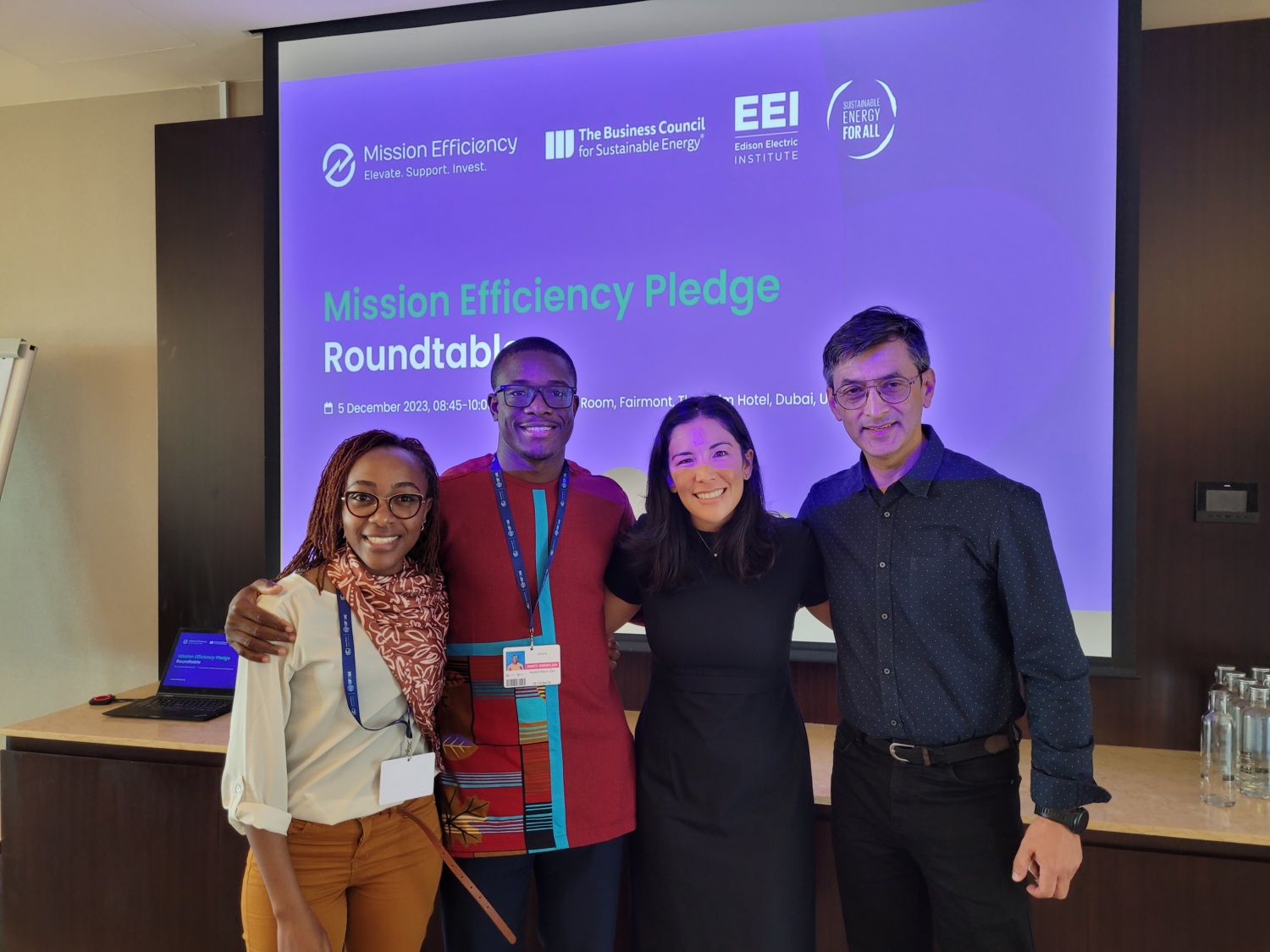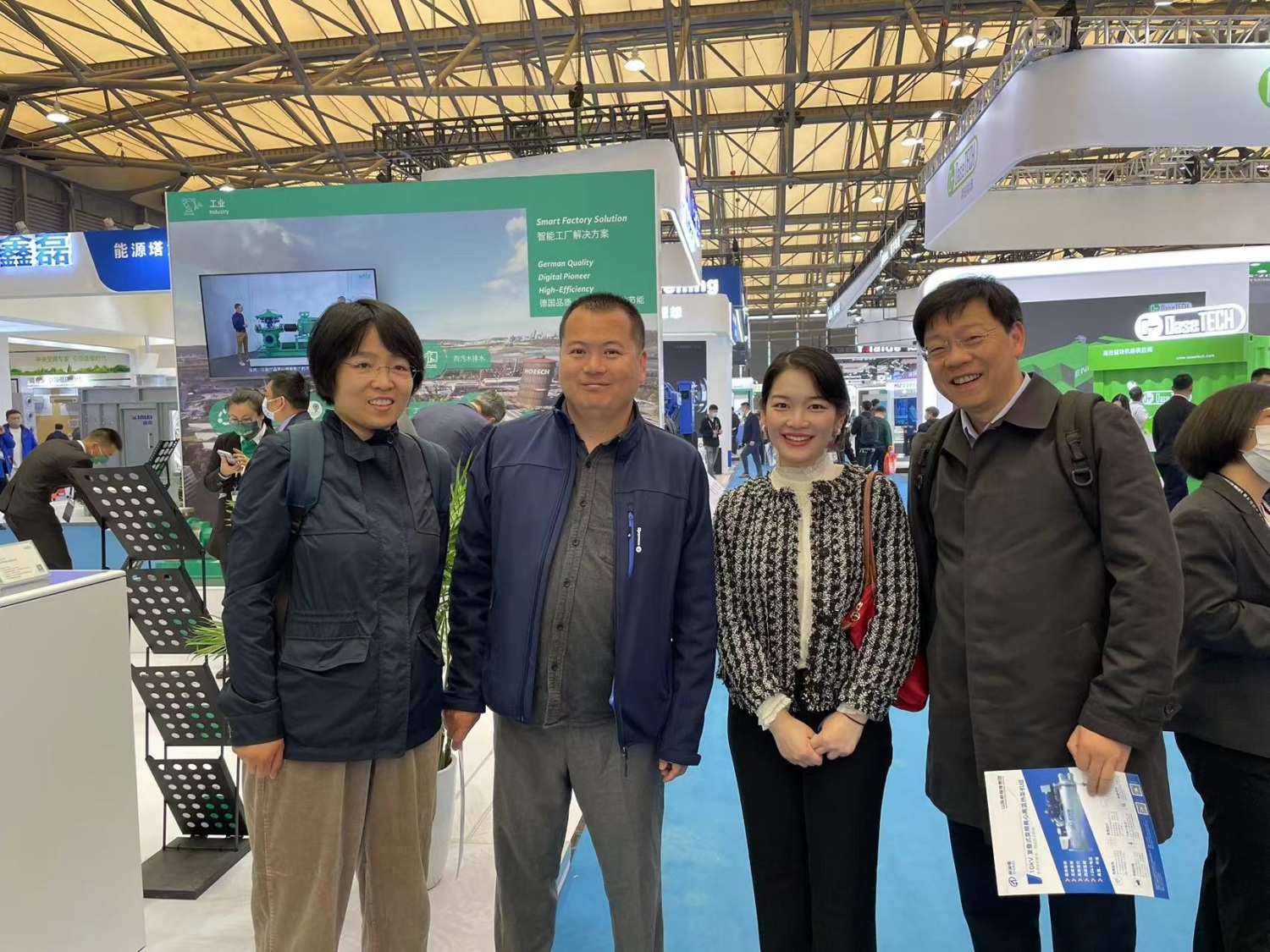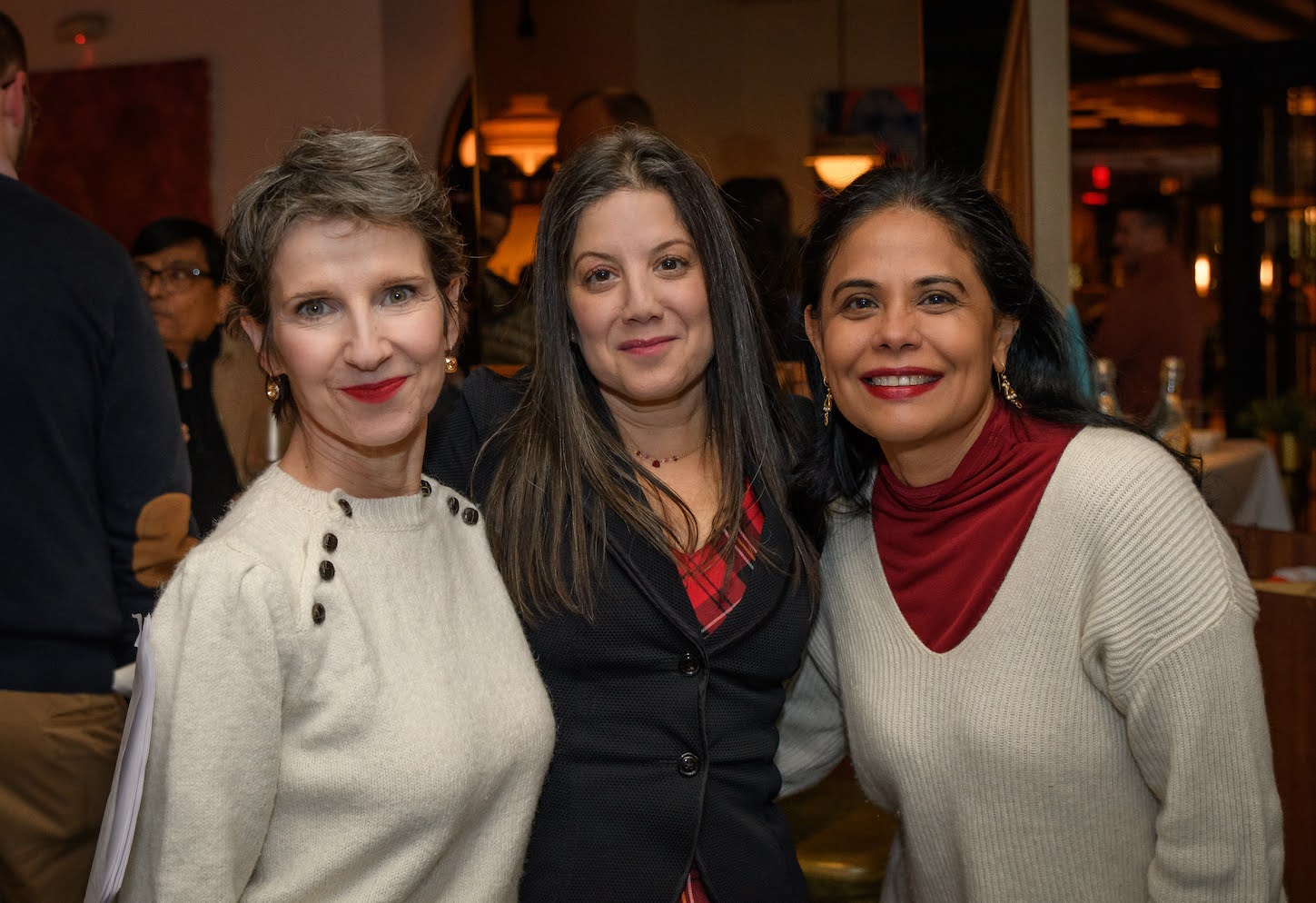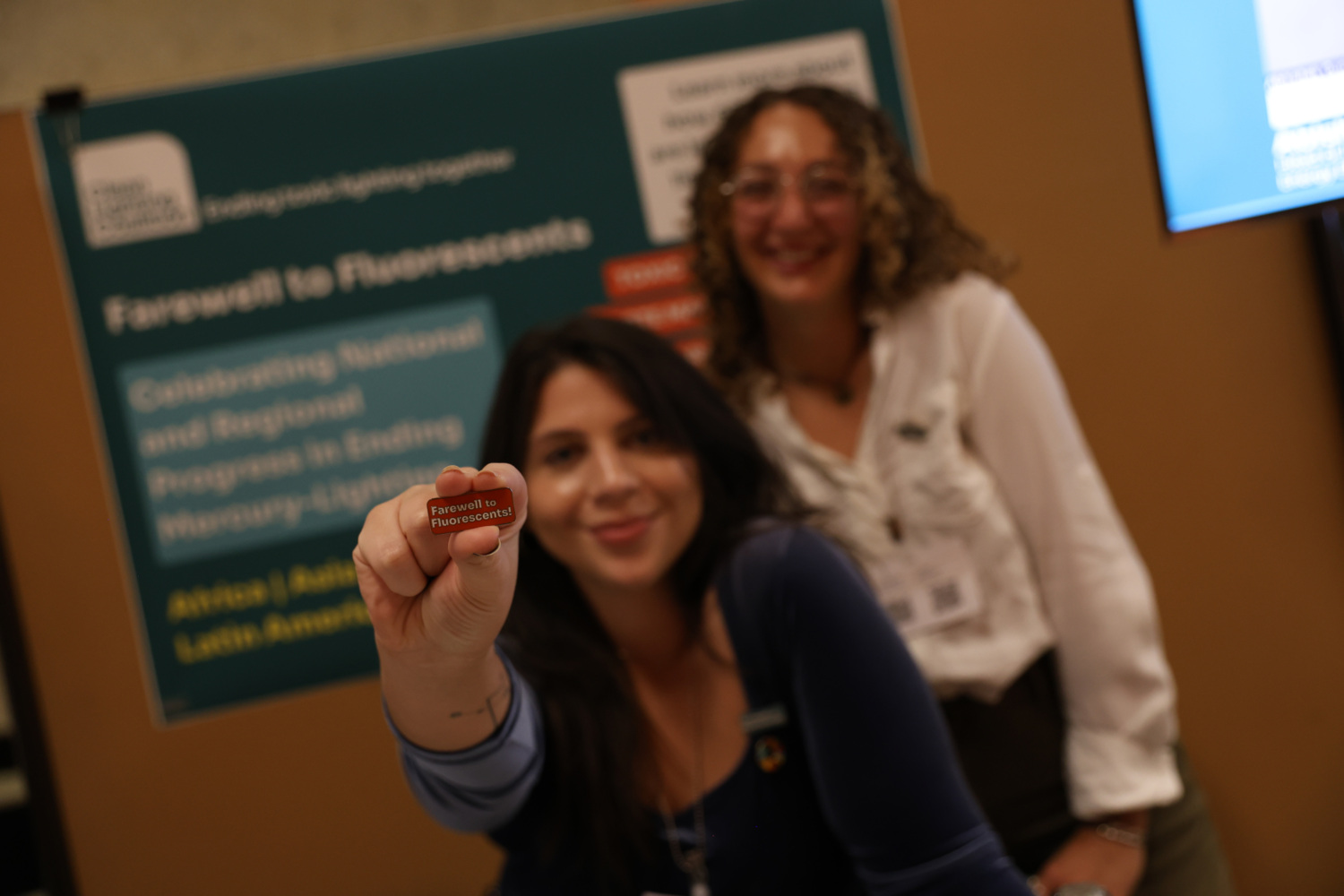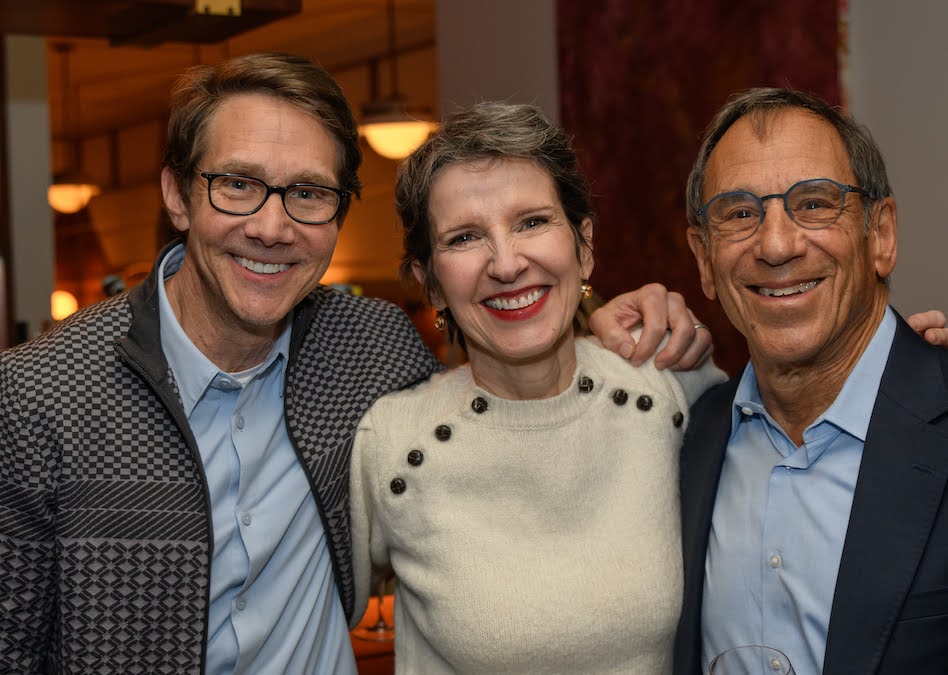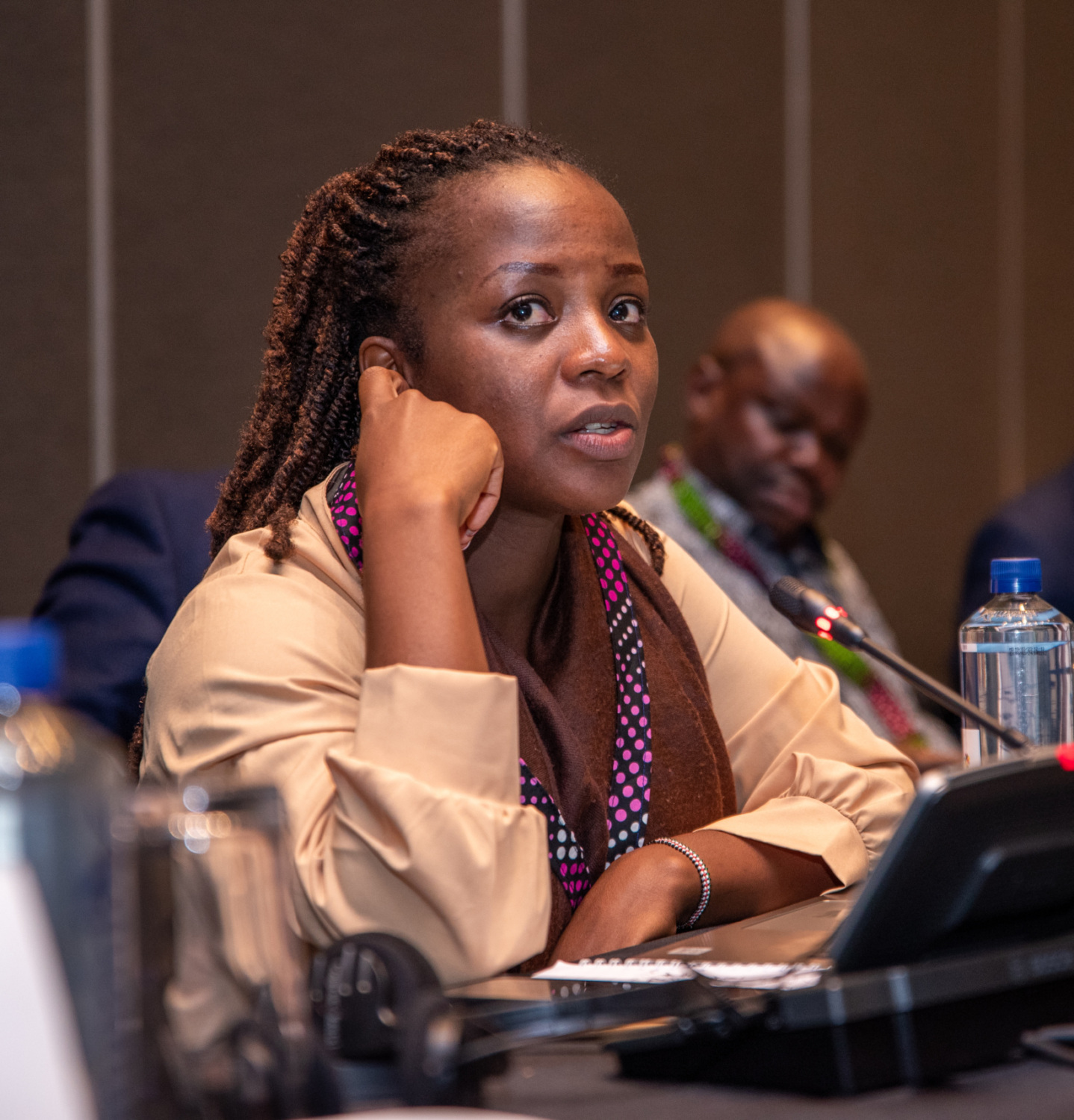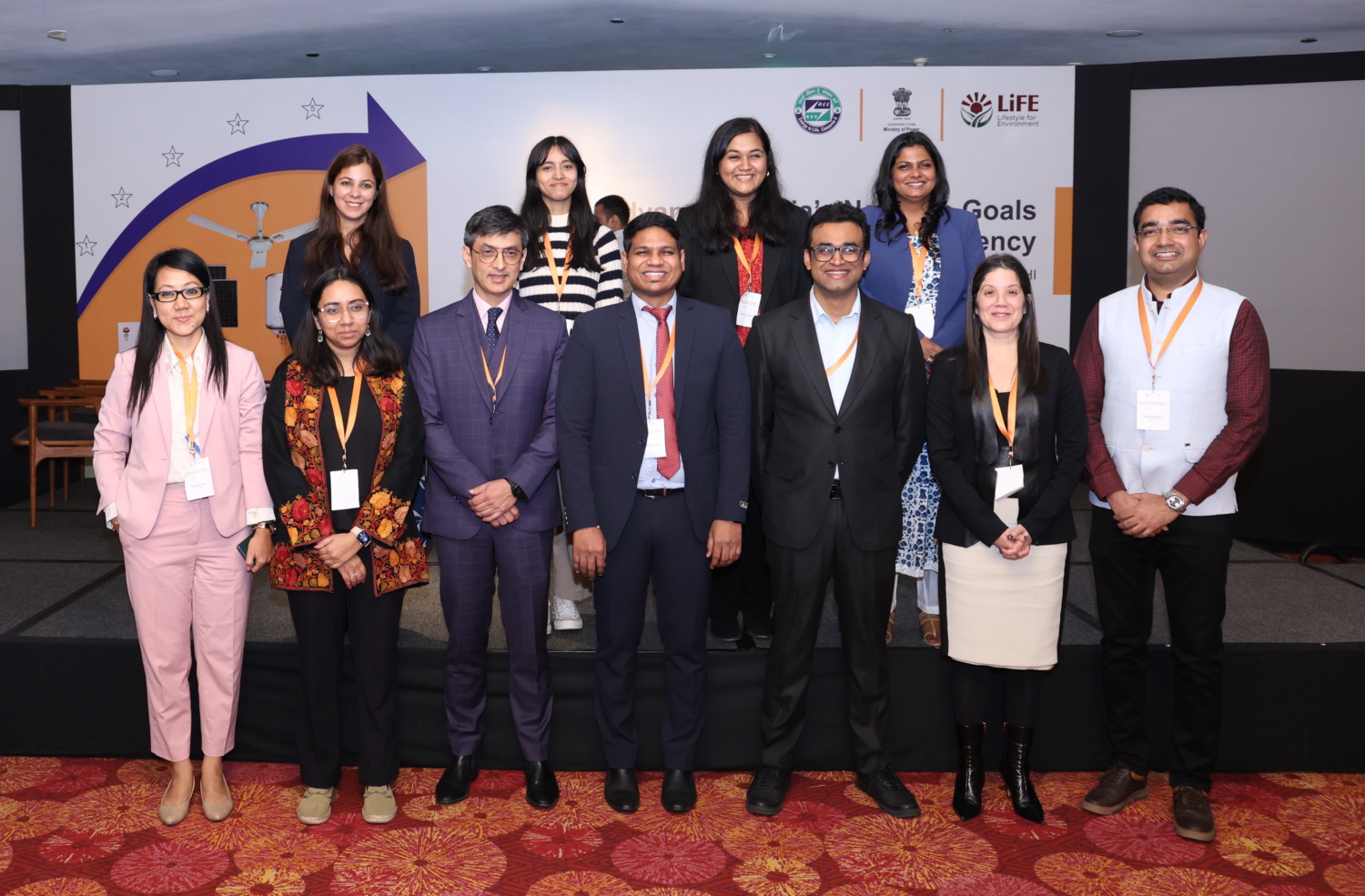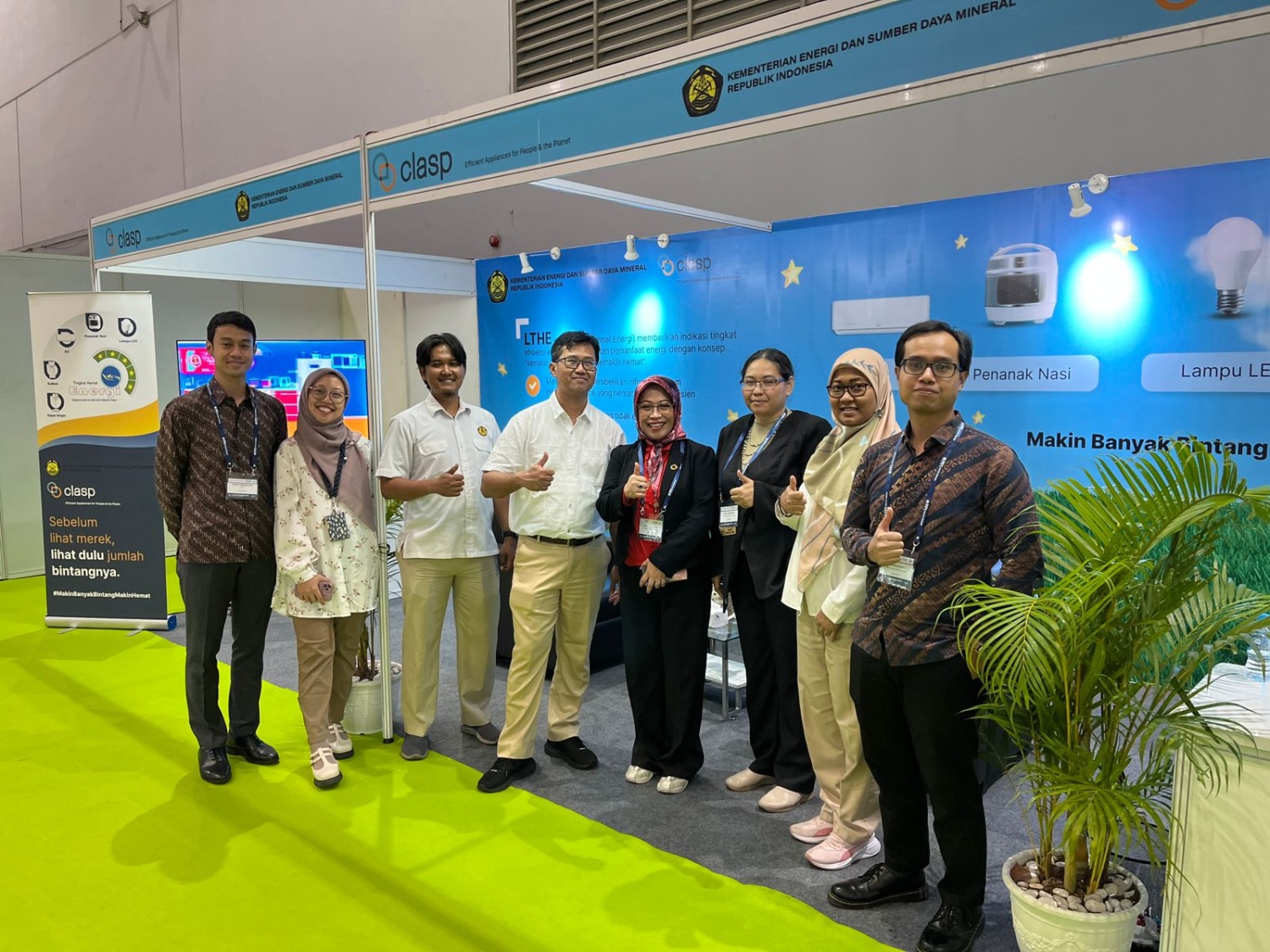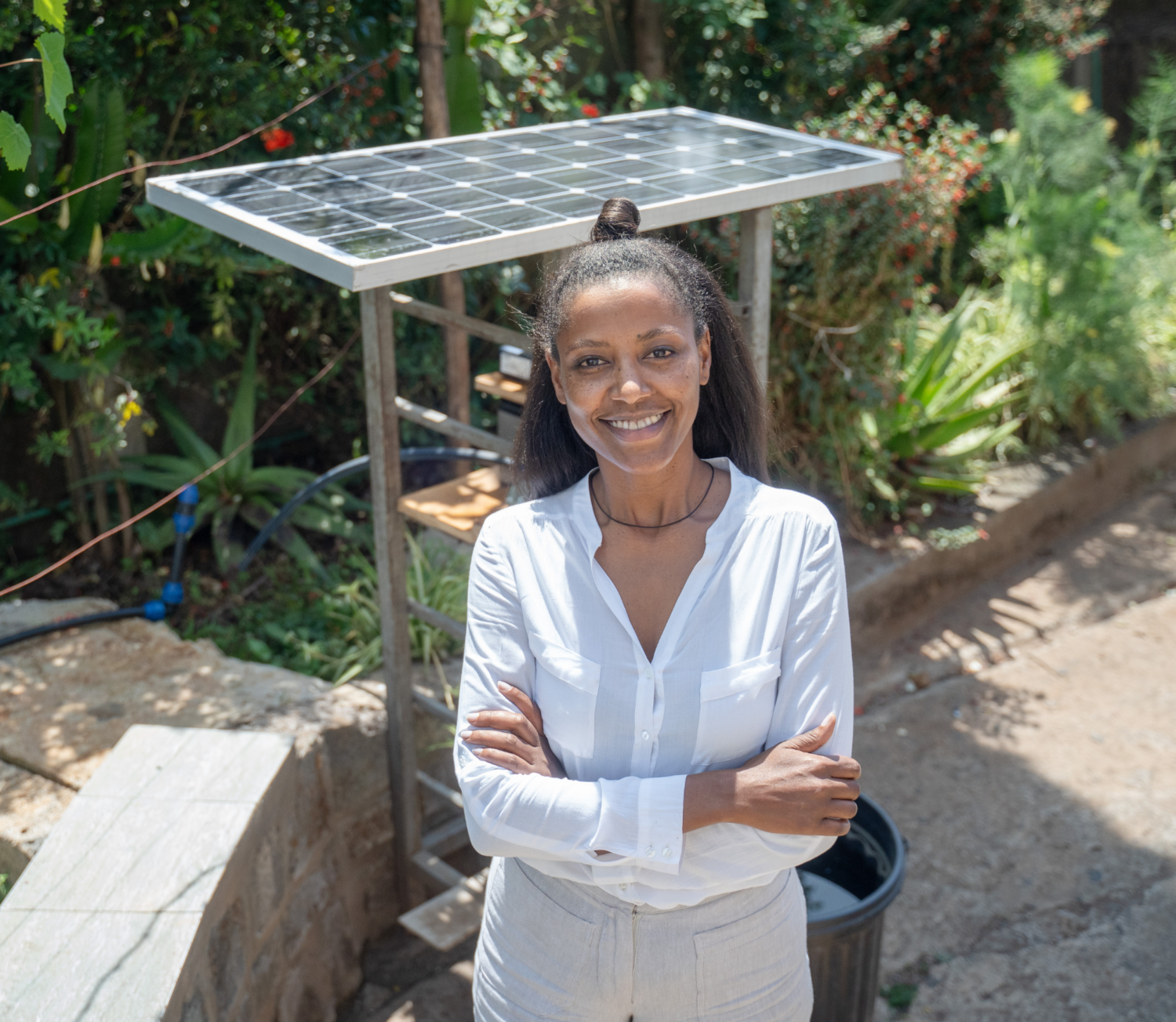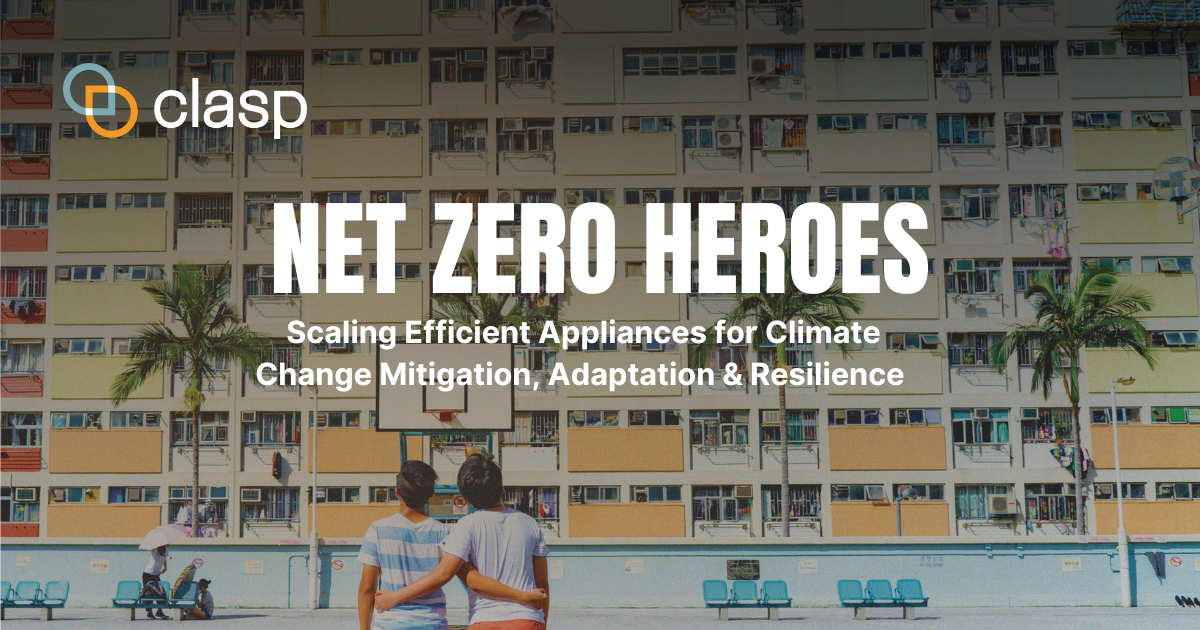2023 CLASP Annual Report

Appliance efficiency: proven solutions at a critical moment
The climate emergency is here. Extreme temperatures and unpredictable weather now affect every person and place on earth. At the same time, millions of people still lack access to vital, modern energy services like cooking and cooling.
CLASP has solutions. CLASP is the leading global authority on appliance efficiency, which drives climate mitigation and adaptation and alleviates energy poverty. Increasing the energy-efficiency and affordability of the appliances people need to live healthy, productive lives is one of the fastest and most cost-effective ways to cut emissions, address rising energy demand, improve livelihoods, and help communities adapt to more extreme temperatures.
For 24 years, CLASP has led the charge to inform decision makers and push for collective action to create a more sustainable world for future generations.
2023 was a big year for CLASP. We expanded our team, published groundbreaking research, and supported ambitious policies. We also improved our suite of tools that show how increasing appliance efficiency can yield substantial and immediate gains in climate and energy access for sustainable development.
With five regional offices spanning the globe, CLASP is a trusted partner. We collaborate with governments, industry, civil society, and other key stakeholders to build momentum for positive change and catalyze markets for affordable, efficient appliances.
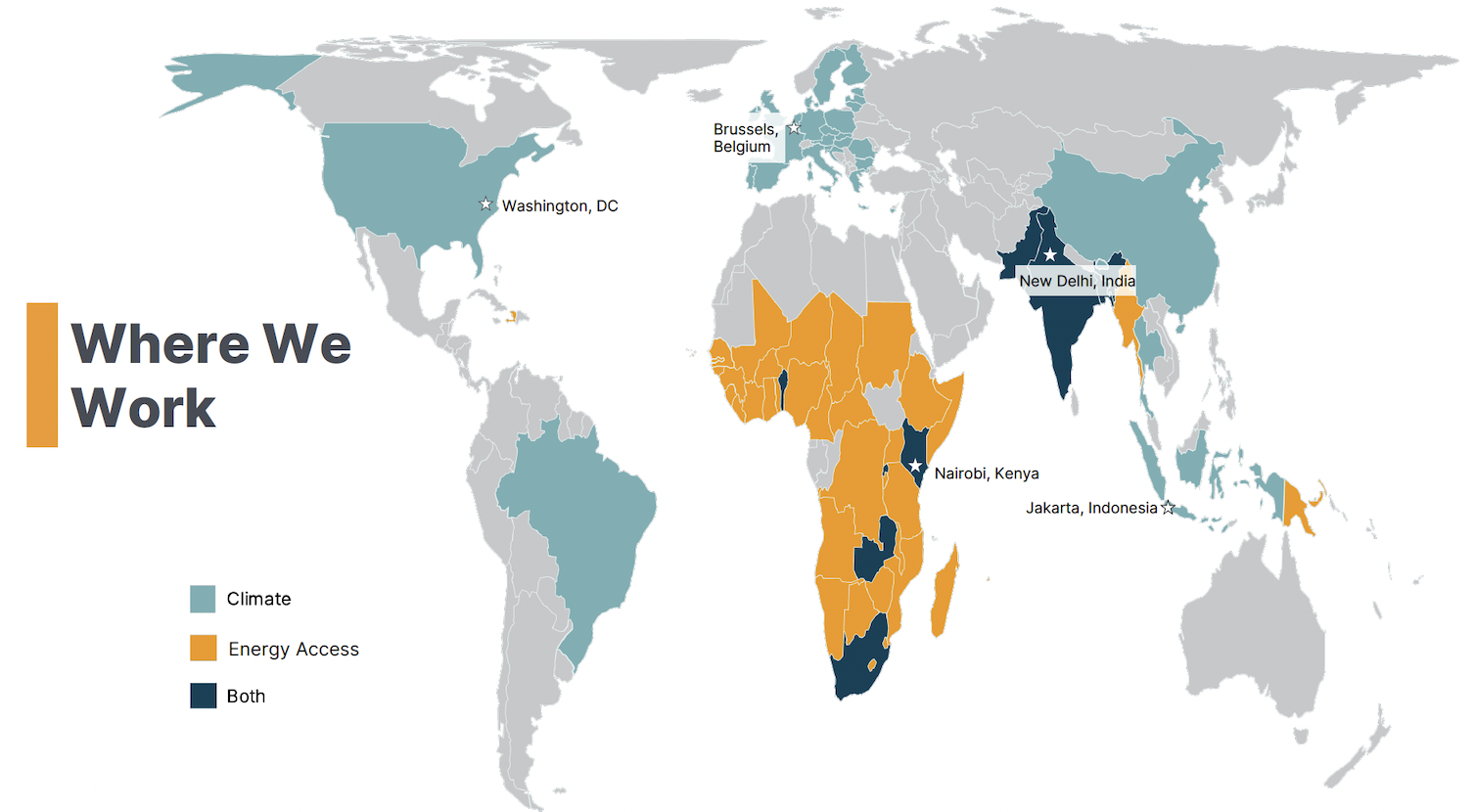
In 2023, CLASP led impactful work through our five regional offices and our constellation of global partners and industry experts.
Illuminating proven solutions for busy policymakers
Robust appliance efficiency policies bolster energy security, job creation, and climate mitigation and adaptation. CLASP works in dozens of countries, collaborating with and supporting those who have the authority to prioritize energy efficiency action.
Brazil Between 2020 and 2023, CLASP supported the Brazilian government in revising refrigerator efficiency policies. CLASP analyzed potential impacts of different policy options and supported Brazil’s Ministry of Mines and Energy with the data and analysis needed to respond to industry inquiry during the public consultation period. The new policy will save consumers an average of $164 USD over the lifetime of each refrigerator and reduce national CO2 emissions by 32 megatons (Mt) by 2040.
China CLASP provided international perspectives on policies for renewable energy transformers, motors, and external power supply. These are projected to avoid 1,330 Mt of CO2 by 2040. CLASP is also providing ongoing technical support to improve and launch seven additional appliance policies in the future.
India CLASP provided technical assistance to India’s Bureau of Energy Efficiency as it launched a record-breaking 15 appliance efficiency policies in 2023. The policies range from essential household appliances to industrial equipment. CLASP’s supported robust policies to align with global best practices. The 15 policies are estimated to avoid 120 Mt of CO2 cumulatively by 2030.
Indonesia Throughout 2023, CLASP played a pivotal role in supporting the development of new efficiency policies for refrigerated display cases and televisions that are projected to avoid 13.5 Mt of CO2 by 2040. In addition, leveraging data from CLASP’s research on the dumping of climate harming room air conditioners in Southeast Asia, policymakers in Indonesia phased out the lowest-efficiency class of room air conditioners, cutting 230 Mt of CO2 by 2040.

Farewell to Fluorescents
Through our Clean Lighting Coalition campaign, CLASP facilitated a fast global transition to LEDs by driving support for African governments who were calling for a phaseout of inefficient, toxic fluorescent lighting under the Minamata Convention on Mercury.
At Minamata COP5 in November, 147 governments agreed to put an end to fluorescent lighting once and for all in 2027. The move, building on a complementary decision at Minamata COP4, will avoid 2.9 gigatons of CO2 from the phaseout dates to 2050.
Flagship Research
CLASP’s sector-leading research bridges the gap between analysis and action, providing policymakers, innovators, and advocates with the robust data and expert recommendations needed to catalyze pivotal solutions.

Net Zero Heroes
CLASP launched the landmark report “Net Zero Heroes: Scaling Efficient Appliances for Climate Change Mitigation, Adaptation & Resilience” in parallel to a multi-month digital campaign and CLASP’s significant presence at UNFCCC COP28 in Dubai. The analysis revealed the appliance sector accounts for nearly 40% of energy-related CO2 emissions. At the same time, billions of people do not have access to the appliances needed to live healthy, productive lives.
CLASP identified ambitious efficiency targets for ten appliances – the Net Zero Heroes – that must form the basis of an unprecedented push to curb the climate crisis.
The Global Stage
In 2023, CLASP and our partners informed leaders and civil society of the huge climate and development opportunities affordable, efficient appliances can bring.
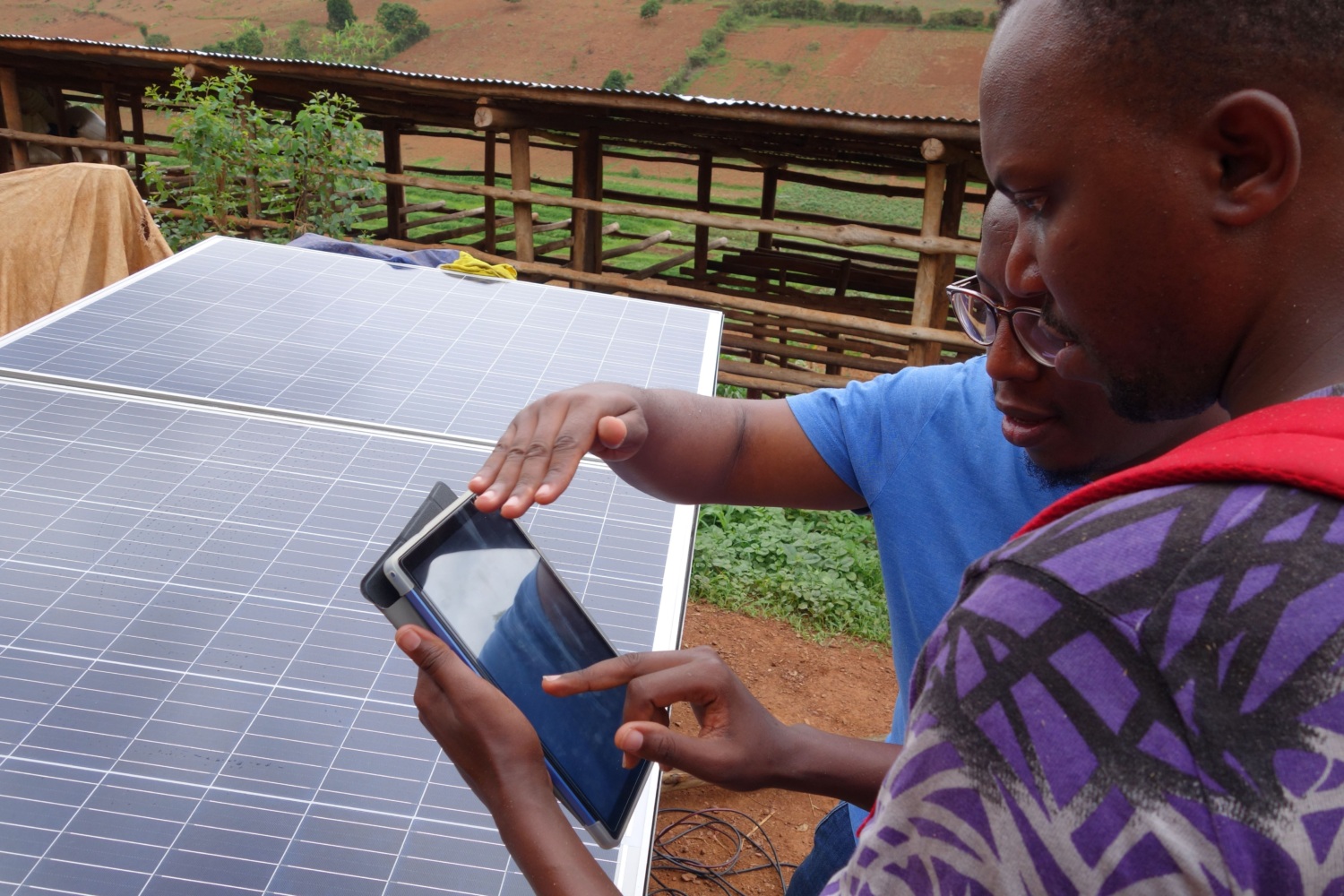
Unlocking Green Jobs
CLASP is working to strengthen job creation through appliance and equipment ownership, as well as training and skills development. This will provide farmers and small businesses with the right tools to excel in our modern economy. Through the Efficiency for Access (EforA) Coalition, we collaborated with Dalberg on a report advocating for green skills to facilitate youth employment in Kenya's solar irrigation sector. CLASP co-manages EforA with Energy Saving Trust.
Innovative Financing Catalyzes Access to Transformative Appliances
CLASP’s innovative financing methods make appliances affordable to those who need them most.
Twenty-four companies selling productive-use appliances like solar-powered refrigerators, pumps, and milling machines across six countries in Africa were selected to receive subsidies and capacity-building grants through CLASP’s Productive Use Financing Facility, in partnership with Nithio. Companies will use their funding to sell over 20,000 appliances, impacting over 90,000 households.
Efficient productive use appliances have transformative effects on local communities, small businesses, and the environment. However, despite their potential for sustainable development outcomes, appliance sales remain low in emerging markets due to their relatively high upfront costs and a lack of access to finance.
CLASP’s innovative financing facility, supported by the Global Energy Alliance for People and Planet, addresses these challenges by helping appliance distribution companies sell their products at lower prices.
IMPACT STORIES
Providing Affordable and Sustainable Energy Solutions in Ethiopia
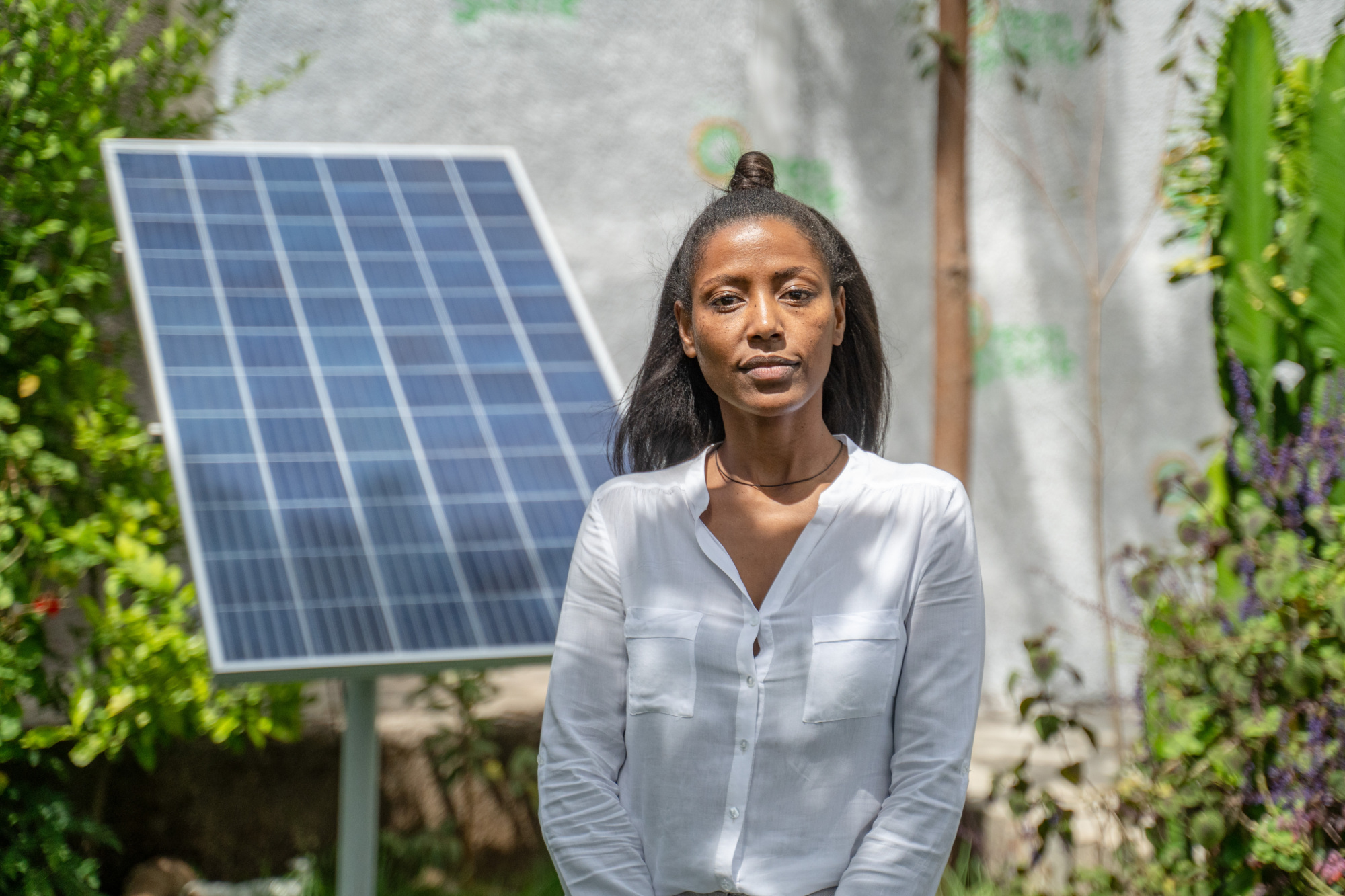
People & Culture
As the world increases its focus on energy efficiency, CLASP’s expertise is in high demand. In 2023, CLASP expanded our team of experts, adding 15 new faces to our international roster.
Finances
With generous donor support for our mission, CLASP expanded our funding in 2023 – increasing our revenue by 24% as compared to 2022.
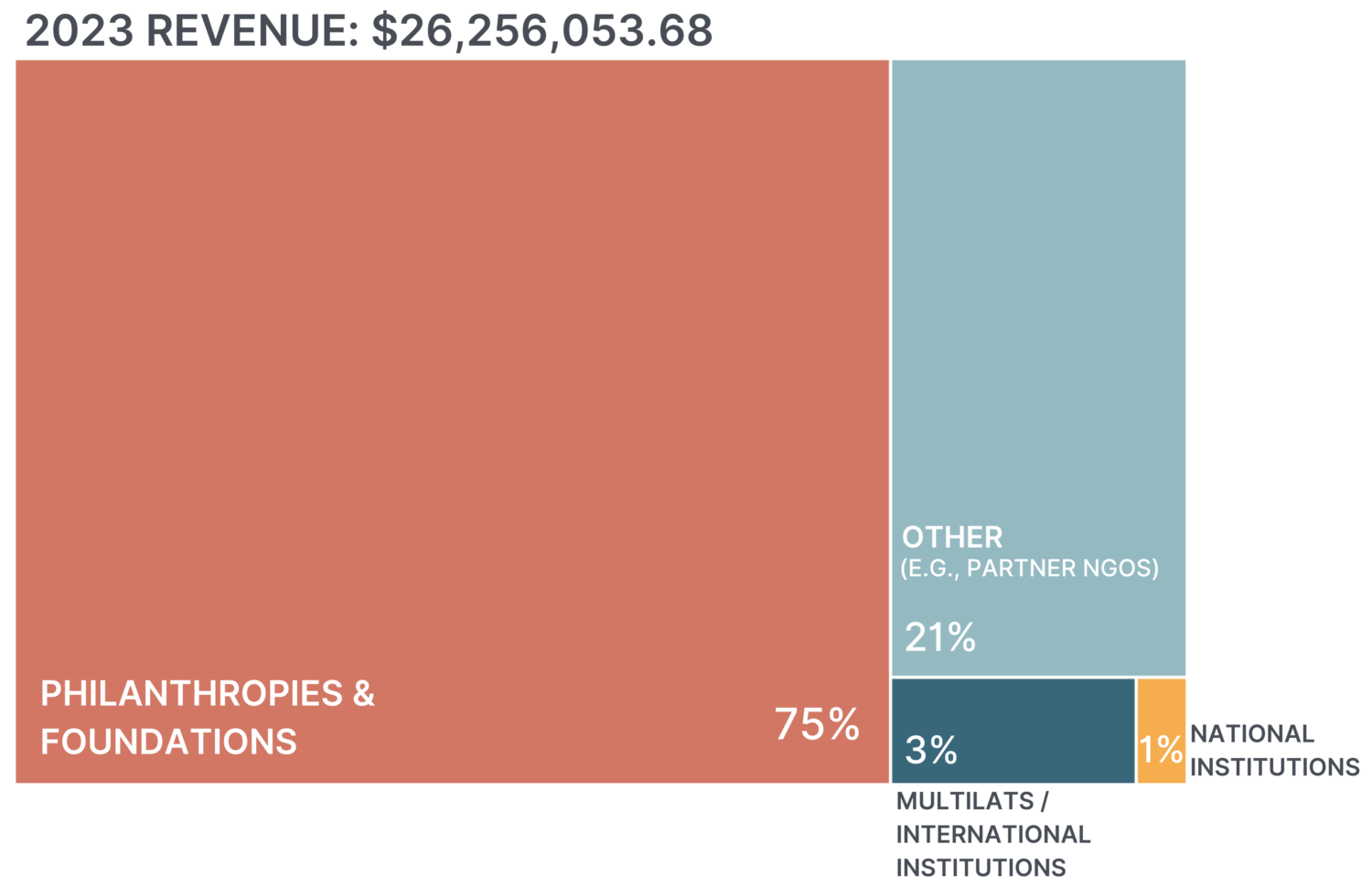
2023 Funding By Donor Type
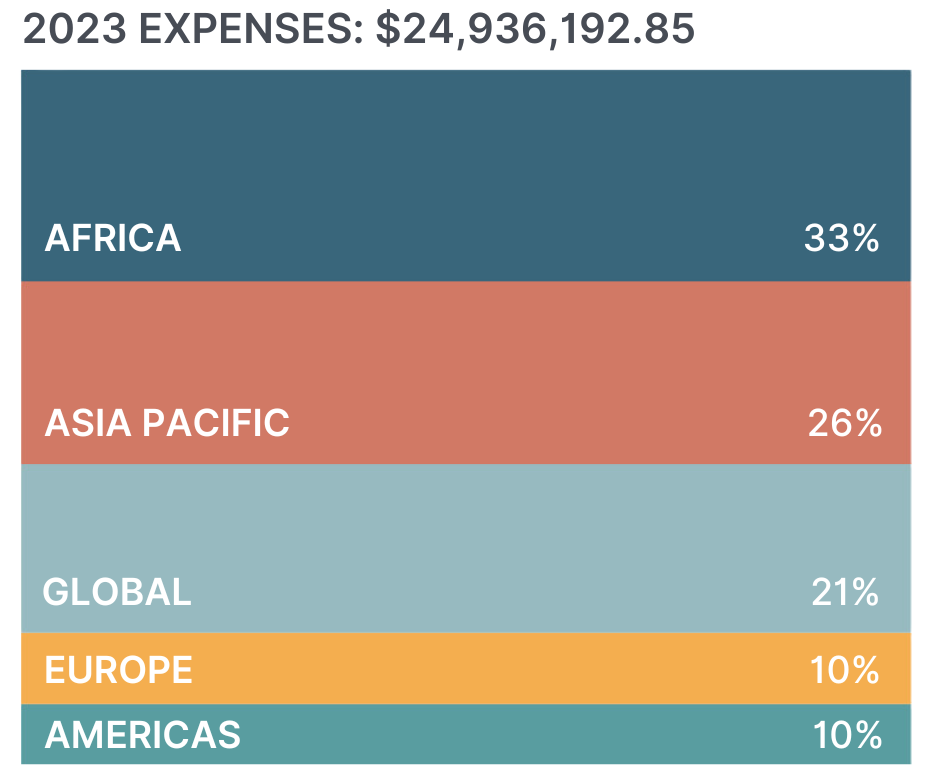
2023 Expenses by Region
We are proud of our team’s positive global impacts in 2023. We look forward to driving progress towards a brighter future for people and the planet in CLASP’s 25th year, 2024!
CLASP Chosen to Lead Initiative with Potential to Bring Clean Energy to Millions
Kigali, Rwanda – At the Transforming Energy Access (TEA) Forum in Kigali, Rwanda this week, CLASP was announced as the new host and manager of the Energy Access Institutions Facility, an initiative that seeks to provide core funding and technical assistance to organizations who accelerate access to life-changing, off-grid energy to millions of people around the world.

Over the next five years, the Facility’s vision is to deploy $25 million USD to a portfolio of five to ten impactful organizations, known as “market institutions”, that are working to grow the distributed renewable energy (DRE) sector. DRE systems are stand-alone, off-grid energy solutions that generate and distribute renewable energy without needing to be connected to the main grid. Expanding this sector has the potential to transform lives and livelihoods by increasing incomes, empowering women, enhancing educational opportunities, improving healthcare, reducing food waste, avoiding greenhouse gas emissions, and much more.
The Facility’s growing portfolio of organizations is expected to have reach across several countries in sub-Saharan Africa and South Asia, potentially increasing the delivery of renewable off-grid energy to millions of people from low-income communities.
Market institutions that support the following will be eligible to apply to the Energy Access Institutions Facility:
- Clean cooking solutions
- Energy efficient appliances and equipment
- Productive Use of Energy
- Standalone solar systems
- Micro grids and mini grids
This Facility is a result of multiple years of funding and commitment by the UK’s Foreign, Commonwealth and Development Office (FCDO) and the UK charity Shell Foundation (SF), and two years of incubation and development managed by Open Capital. FCDO and SF provided $5.5 million USD in seed funding to the first tranche of market institutions to prove this concept.
In the Facility’s first year, five market institutions, including the Africa Minigrid Developers Association (AMDA), Ethiopia Energy Market Accelerator (EMA), GOGLA, Nigeria Off-Grid Market Accelerator Programme (NOMAP), and the Uganda Off-Grid Market Accelerator, were the first grantees.
The Swedish International Development Cooperation Agency (Sida) has recently announced its commitment to providing approximately $4.5 million USD in funding for this next phase led by CLASP. This support will enable the Facility to disperse further funding to another round of market institutions and accelerate the Facility’s growth. In the coming months, CLASP is committed to securing additional funding from donors who have already indicated an interest in this impactful initiative.
Anders Arvidson, Senior Advisor and Team Lead in Sida’s Power Africa Team, noted:
“The Facility’s vision of accelerating access to clean energy for the world’s lowest-income people strategically aligns with Sida’s mission to reduce poverty around the world by partnering with the private sector in support of market development and mobilization of capital. We are proud to offer our support to take this initiative to its next phase, and to accelerate necessary growth in the clean energy sector. We look forward to working closely with CLASP to realize this vision.”
CLASP was selected because of the organization’s 25-year tenure as the leading, global organization advancing affordable, efficient appliances to mitigate climate change and help communities adapt and thrive. CLASP has proven expertise managing similar programs, including serving as the co-secretariat of the Efficiency for Access Coalition, an initiative supporting off-grid appliance market research and innovation; and as Operating Agent for the Super-efficient Appliance and Equipment Deployment (SEAD), a $20 million initiative under the Clean Energy Ministerial. CLASP also manages the Productive Use Financing Facility, a $6.5 million financing facility to catalyze the uptake of productive use appliances across East, West and Central Africa.
Christine Egan, CEO at CLASP, reflected on how the Energy Access Institutions Facility would push for real impact in the sector:
“The Energy Access Institutions Facility is positioned to impact and enhance millions of lives at a critical moment for sustainable development and global climate ambition. Exponentially increasing the number of people using off-grid, renewable energy and appliances will be a livelihood game changer in regions where access to traditional grid electricity is insufficient or non-existent. CLASP is committed to serving the sector and partnering with essential energy access institutions to deliver and scale collective impacts.”
In the coming months, CLASP will communicate opportunities for involvement and next steps for market-enabling organizations who are interested in participating, as well as donors who are interested in further supporting the Facility.
About the Facility
The Energy Access Institutions Facility is a joint donor initiative that provides funding and technical support to organizations known as market institutions to overcome barriers and scale the distributed renewable energy (DRE) sector, to accelerate universal access to affordable, clean, and modern energy (Sustainable Development Goal 7). The Facility is managed by CLASP, with initial contributions from Shell Foundation and FCDO, and a current contribution from Sida.
Learn more about the Facility.
About CLASP
CLASP is the leading global authority with 25 years’ expertise on how appliance efficiency drives climate mitigation, adaptation and improves the lives and livelihoods of people. An international nonprofit with offices on four continents, CLASP collaborates with policymakers, appliance manufacturers, and leading experts to deliver sound policy recommendations, innovative tools, groundbreaking research, and clear pathways to a more sustainable world for people and the planet.
Financing for Impact: Providing Affordable and Sustainable Energy Solutions in Ethiopia
Rain-fed agriculture is a fundamental pillar of the Ethiopian economy. In 2022, agriculture employed about 80% percent of the country’s workforce and contributed nearly 38% to gross domestic product (GDP).1 However, persistent droughts have posed significant challenges to farmers’ livelihoods and reduced food yields.
Off-grid irrigation as a solution
Solar water pumps are a sustainable, off-grid solution to improve small-scale irrigation, strengthen community resilience, and support sustainable economic growth. Powered by the sun, solar water pumps also reduce the use of fossil fuels, so they are less harmful to the climate. Rekik Bekele is the founder and CEO of Green Scene Energy, a thriving solar appliance distributor. Green Scene recently received business support through CLASP’s Productive Use Financing Facility to increase its supply of affordable solar water pumps.
Providing Affordable and Sustainable Energy Solutions in Ethiopia
Founded by Rekik Bekele in 2016, Green Scene Energy provides affordable, high-quality solar energy products in off-grid areas of Ethiopia. Green Scene began by specializing in solar home lighting systems, later expanding its portfolio to include solar mini-grid, commercial and industrial solar engineering, procurement and construction (EPC) solutions for off-grid projects.
In 2022, in response to the growing need for irrigation pumping in rural areas across Ethiopia, Green Scene began distributing solar-powered water pumps. To date, the company has successfully positioned itself as a market leader in the provision of affordable solar water pumping systems.
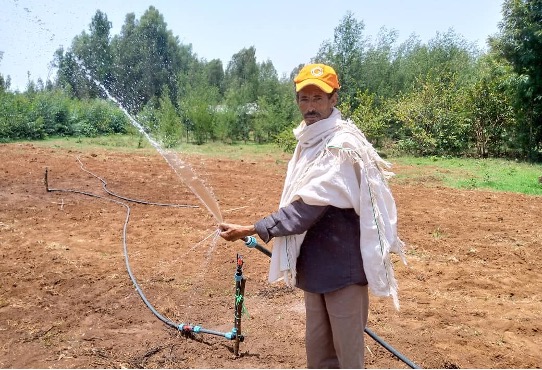
Financial support catalyzing progress
Despite a growing demand for solar water pumps, the substantial upfront capital required exposes significant challenges. According to Rekik, CLASP’s Productive Use Financing Facility has been instrumental in allowing Green Scene to continue selling solar water pumps in 2023. “We had been seeking investment for some time; by the end of 2022, we were only importing small numbers of pumps at a time, using existing sales revenue,” observed Rekik.
“Green Scene’s expanded capacity to make larger, more efficient orders, is allowing us to reach many more end users. Response to the introduction of the pumps is incredibly positive. The farmers are pleased with the improvements.”
Appliances with a transformative potential
Efficient productive use appliances (PUAs), like solar water pumps, refrigerators, and milling machines, have transformative effects on local communities, small businesses, and the environment. However, despite their potential for income generation, PUA sales remain remarkably low in emerging markets due to their relatively high upfront costs and a lack of access to finance. CLASP’s innovative financing facility addresses these challenges by helping distribution companies like Green Scene sell their products at lower prices.
Multifaceted support
The Facility’s support to Green Scene is multifaceted. Subsidies to lower product prices are easing import constraints, while increased performance testing verifies product quality. A capacity-building grant is also helping with a variety of one-off costs and purchases associated with introducing new product lines.
“The funding has assisted Green Scene in selling over 50 solar water pumps,” adds Rekik. “We expect to sell at least another 250 during the upcoming months.”
According to Rekik, demand is leading Green Scene away from the sole retail of solar lighting, toward a greater focus on solar-powered productive-use appliances (PUAs). She attributes this strategic transition to the considerable success achieved with solar water pumps and a recognition of the tremendous potential within the PUA market.
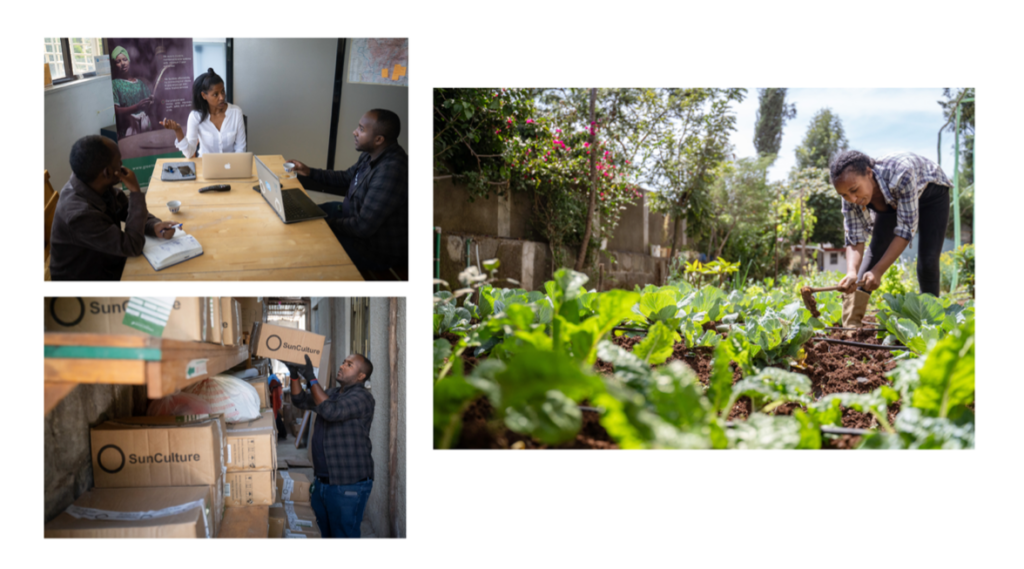
Assisting customers to access finance
In addition to expanding and diversifying its portfolio, Green Scene Energy has also leveraged the Facility’s support to unlock consumer financing for solar water pumps. Rekik and her colleagues have been working closely with an Ethiopian bank to design the bank’s first-ever consumer loan product for solar water pumps.
“Previously, the Bank had provided loans for solar lighting to consumers through Micro-Finance Institutions (MFI),” explains Rekik. “However, solar water pumps have become more expensive and technologically complex. For the first time, the MFIs are now offering collateral-free loans for solar water pumps.”
According to Rekik, CLASP’s financing has been critical for Green Scene because it is in a scale-up stage. They have been able to use the funding to gain confidence and trust in their business, which has in turn facilitated the securing of additional private financing.
***
About The Productive Use Financing Facility
CLASP is proud to be coordinating the Productive Use Financing Facility, supported by The Global Energy Alliance for People and Planet (GEAPP). By supporting businesses like Green Scene Energy, CLASP ensures more transformative appliances are made accessible to those who need them the most. Learn more about the Facility.
0. Ethiopia – Country Commercial Guide; https://www.trade.gov/country-commercial-guides/ethiopia-agro-processing
Financing for Impact: Powering Change in Northern Uganda with Solar
Appliances Supporting Life-Saving Health Facilities
The Rhino Camp is a refugee settlement camp in Northern Uganda. Within the camp is the Ofua Health Center 3, a solar-powered medical facility with just two doctors attending to a population of over 45,000 people. Dr. Gideon Anguerini highlights a pressing challenge: the center’s reliance on a single, energy-inefficient fridge unsuitable for solar power. The health center aims to purchase an efficient solar-powered fridge from POPO Africa, an appliance distributor based in Uganda. With the fridge, the health center’s services will be expanded, its energy costs significantly lowered and it can treat more patients.
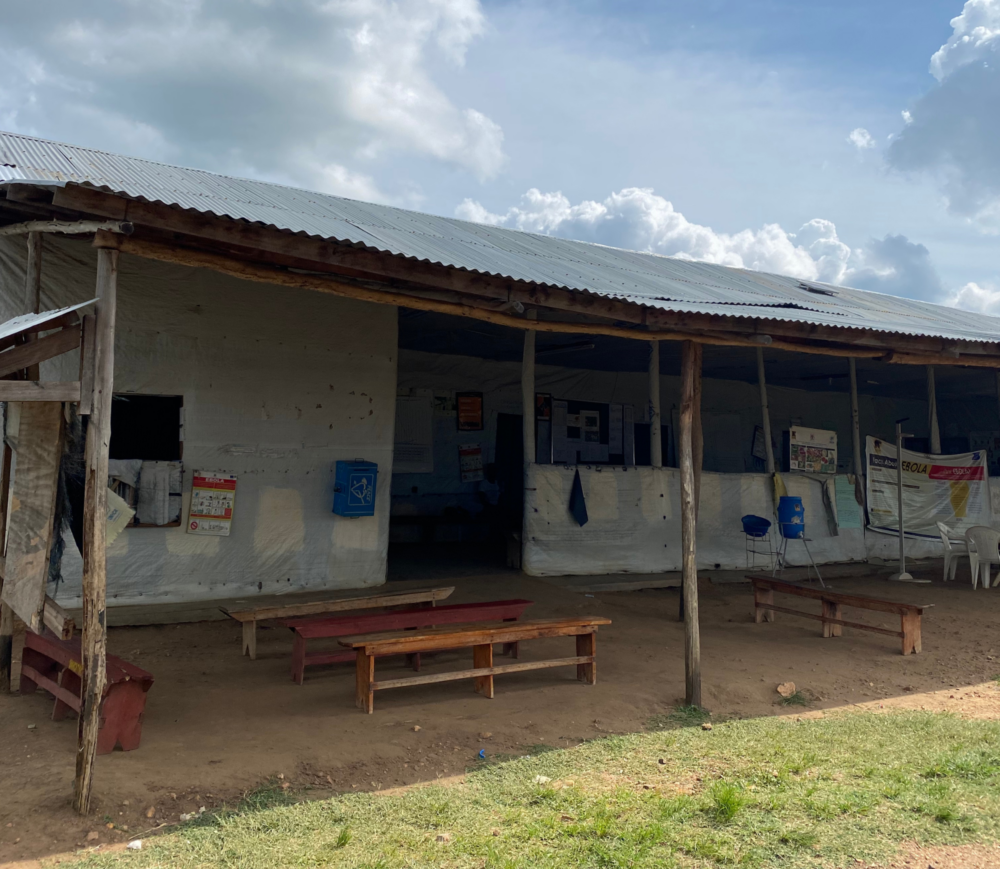
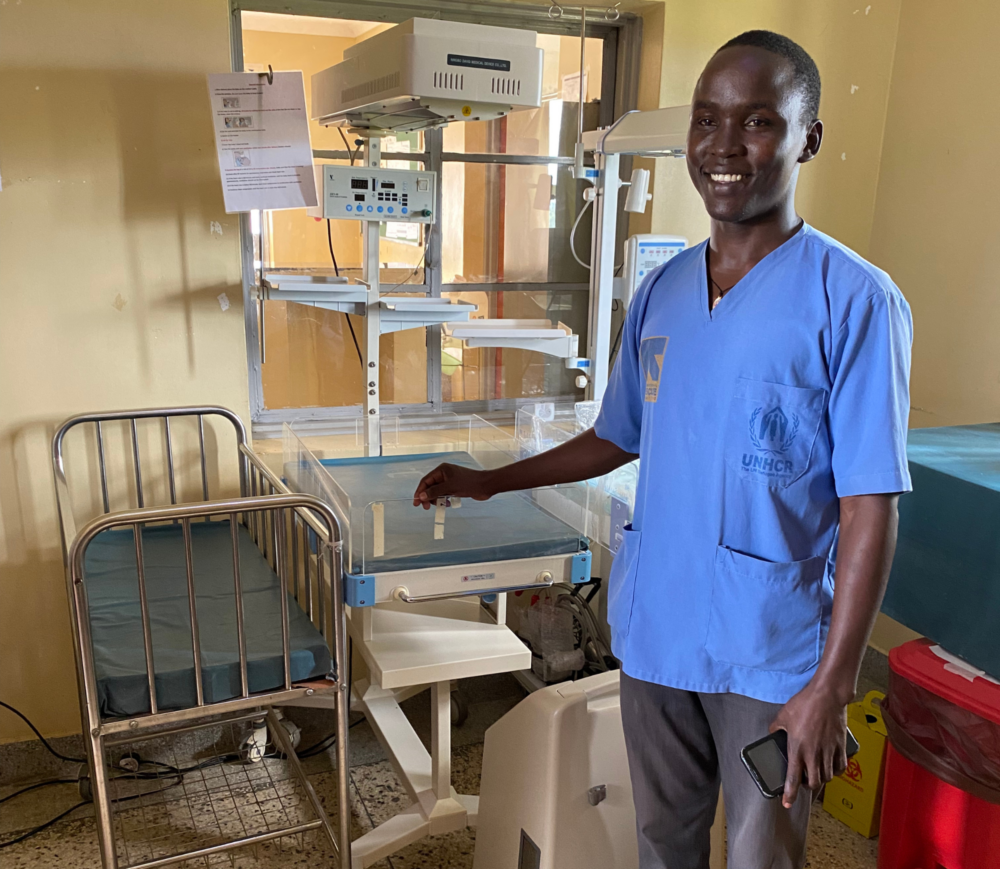
Delivering Change through Solar Solutions
From the outset, POPO Africa’s vision aimed at enhancing maternal health by ensuring that clinics in refugee camps had reliable solar lighting powered by solar battery packs. This expanded, as the company moved into leasing the battery packs to the wider community.
POPO’s solar batteries are a lifeline for community businesses, enabling them to operate after dark, offer phone charging services, and more. With 54 distribution points across five districts, POPO’s impact is widespread, directly employing 75 people and indirectly supporting many more through their distribution network. POPO Africa also places a strong emphasis on women’s economic empowerment, boasting a workforce that is 70% female.
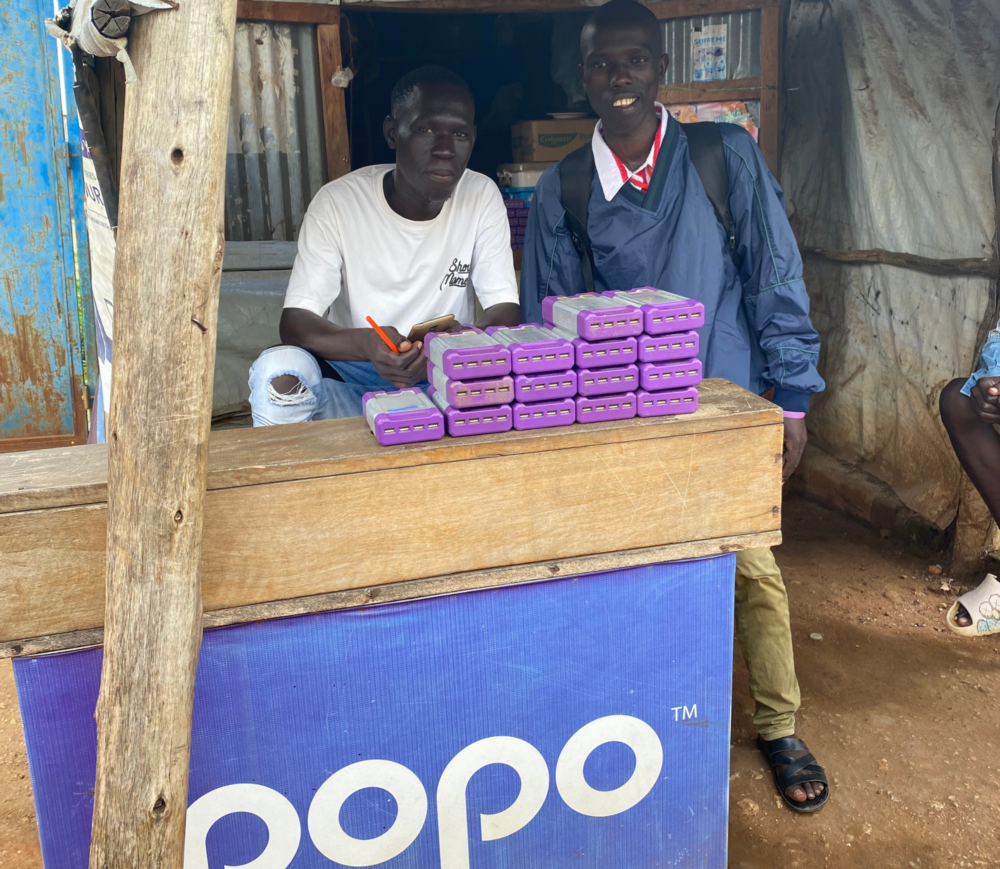
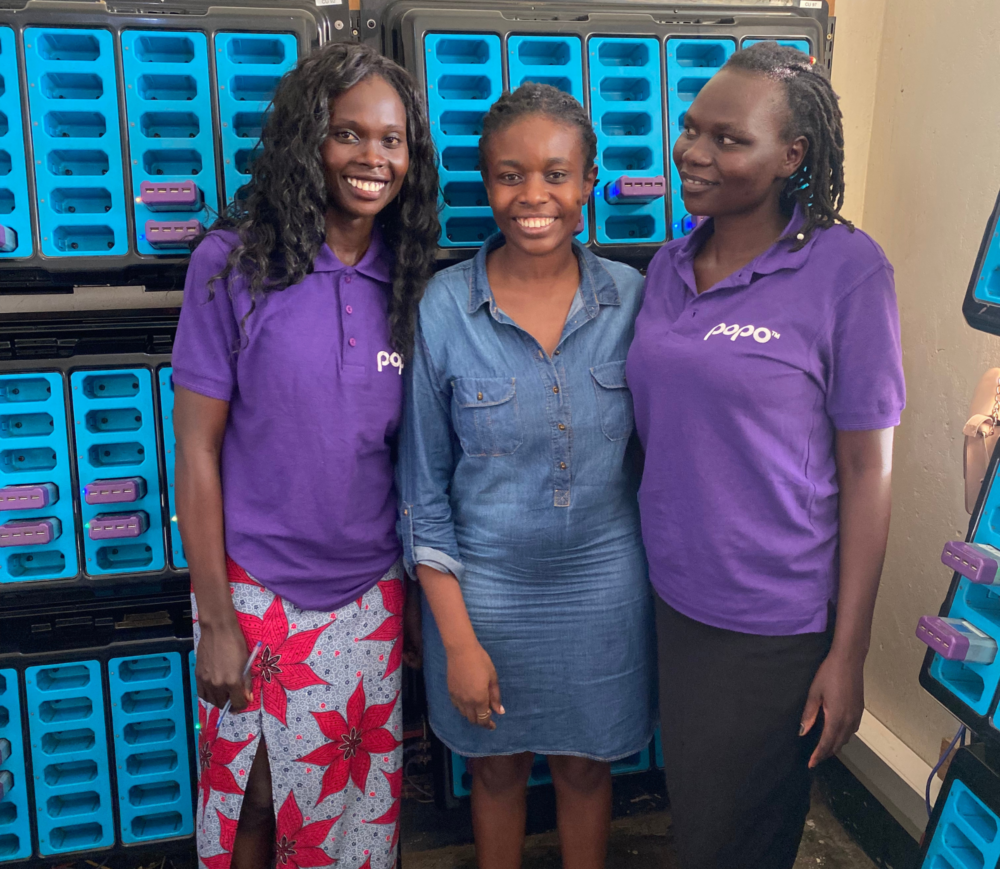
Recognizing the critical need for cooling services POPO aimed to revolutionize the off-grid cold chain service in Northern Uganda. The only barrier to this was capital constraints. POPO could not pursue the cold chain opportunity without external support. With funding from CLASP’s Productive Use Financing Facility, POPO was able to start selling solar-powered refrigerators, that will benefit healthcare facilities and empower local businesses.
Transformative, Impactful Financing
Efficient productive-use appliances (PUAs) like solar-powered refrigerators, pumps, and milling machines can have transformative effects on local communities, small businesses, and the environment. However, despite their potential for income generation, PUA sales remain remarkably low in emerging markets due to their relatively high upfront costs and a lack of access to finance. CLASP set up the Productive Use Financing Facility to address these challenges by helping distribution companies like POPO Africa sell their products at lower prices.
Overcoming Capital Constraints
With CLASP’s Facility’s procurement subsidies and capacity-building grant, POPO is working to sell approximately 140 refrigerators within a year. They have made that transformative step into the cold chain market and are now extending affordable, off-grid cooling to their customers, like the Ofua Health Center.
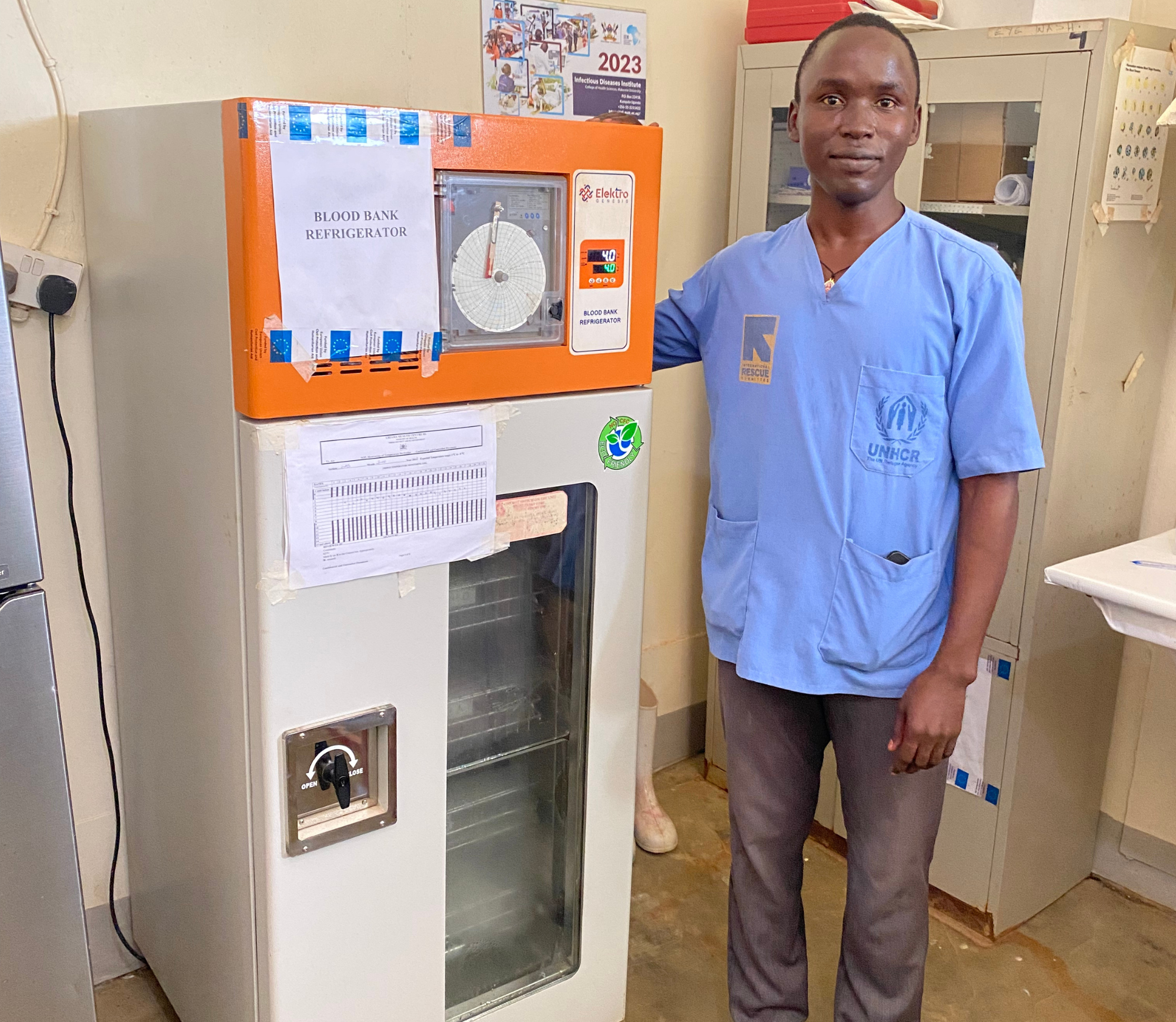
With each solar-powered battery and refrigerator, POPO is helping to build a future where energy is accessible, businesses thrive, and healthcare advances, even in the most remote corners of the world.
***
CLASP is proud to be coordinating the Productive Use Financing Facility, supported by The Global Energy Alliance for People and Planet (GEAPP). By supporting businesses like POPO Africa, CLASP ensures more transformative appliances are made accessible to those who need them the most. Find out more about the Facility.
0. Ethiopia – Country Commercial Guide; https://www.trade.gov/country-commercial-guides/ethiopia-agro-processing
Financing for Impact: Powering Change in Northern Uganda with Solar
Appliances Supporting Life-Saving Health Facilities
The Rhino Camp is a refugee settlement camp in Northern Uganda. Within the camp is the Ofua Health Center 3, a solar-powered medical facility with just two doctors attending to a population of over 45,000 people. Dr. Gideon Anguerini highlights a pressing challenge: the center’s reliance on a single, energy-inefficient fridge unsuitable for solar power. The health center aims to purchase an efficient solar-powered fridge from POPO Africa, an appliance distributor based in Uganda. With the fridge, the health center’s services will be expanded, its energy costs significantly lowered and it can treat more patients.


Delivering Change through Solar Solutions
From the outset, POPO Africa’s vision aimed at enhancing maternal health by ensuring that clinics in refugee camps had reliable solar lighting powered by solar battery packs. This expanded, as the company moved into leasing the battery packs to the wider community.
POPO’s solar batteries are a lifeline for community businesses, enabling them to operate after dark, offer phone charging services, and more. With 54 distribution points across five districts, POPO’s impact is widespread, directly employing 75 people and indirectly supporting many more through their distribution network. POPO Africa also places a strong emphasis on women’s economic empowerment, boasting a workforce that is 70% female.


Recognizing the critical need for cooling services POPO aimed to revolutionize the off-grid cold chain service in Northern Uganda. The only barrier to this was capital constraints. POPO could not pursue the cold chain opportunity without external support. With funding from CLASP’s Productive Use Financing Facility, POPO was able to start selling solar-powered refrigerators, that will benefit healthcare facilities and empower local businesses.
Transformative, Impactful Financing
Efficient productive-use appliances (PUAs) like solar-powered refrigerators, pumps, and milling machines can have transformative effects on local communities, small businesses, and the environment. However, despite their potential for income generation, PUA sales remain remarkably low in emerging markets due to their relatively high upfront costs and a lack of access to finance. CLASP set up the Productive Use Financing Facility to address these challenges by helping distribution companies like POPO Africa sell their products at lower prices.
Overcoming Capital Constraints
With CLASP’s Facility’s procurement subsidies and capacity-building grant, POPO is working to sell approximately 140 refrigerators within a year. They have made that transformative step into the cold chain market and are now extending affordable, off-grid cooling to their customers, like the Ofua Health Center.

With each solar-powered battery and refrigerator, POPO is helping to build a future where energy is accessible, businesses thrive, and healthcare advances, even in the most remote corners of the world.
***
CLASP is proud to be coordinating the Productive Use Financing Facility, supported by The Global Energy Alliance for People and Planet (GEAPP). By supporting businesses like POPO Africa, CLASP ensures more transformative appliances are made accessible to those who need them the most. Find out more about the Facility.
0. Ethiopia – Country Commercial Guide; https://www.trade.gov/country-commercial-guides/ethiopia-agro-processing
Securing Year-Round Water Supply On Small Farms In Rwanda
Cosmos Ntare’s farm is in Kayonza, three hours outside of Kigali. Until recently, his ability to grow his main crops — peas, mangoes, oranges, maize, and beans — was limited by the availability of water. “Without irrigation, you only have two seasons to grow crops,” he points out. “With irrigation, I will be able to grow crops in the third season, the dry season.”
Water has also posed a challenge for Ntare’s livestock operations. He keeps several cows and goats at the top of a hill, where it can be difficult to transport heavy liquids.
To support Ntare in overcoming these issues, CLASP selected his farm to field test a solar water pump. Ntare had seen these devices on display in shops in Kigali, but hadn’t had the opportunity to try one out yet due to their cost.
Testing clean irrigation solutions
Secure irrigation is becoming a necessity as our planet heats. Solar water pumps are off-grid appliances that use sunlight for power. Photovoltaic panels generate electricity that powers a motor, allowing the pump to draw water from either under the ground or from ponds, lakes, and rivers.
By ensuring a regular supply of water, these pumps can increase a farm’s yield. In addition, they avoid the use of diesel pumps for off-grid electricity, so they have cheaper running costs and lower greenhouse gas emissions.
To understand how these productive use appliances perform in a working farm over time, CLASP and Sustainable Energy for All (SEforALL) selected Ntare’s farm to field-test a solar water pump for four months. CLASP’s team set up the pump, along with monitors designed to measure its efficiency. The researchers are also surveying the farmers during the testing period to understand whether these appliances are a good fit for their needs.
Measuring efficiency and business viability
While laboratory testing gives a glimpse of appliance performance in a controlled environment, it provides only a limited representation of how products operate under the rigors of real use. Field testing like that underway at Ntare’s farm is critical to measure the appliance’s efficiency and durability over an extended period of time. It can quantify time savings and additional income generated or saved, as well as calculate avoided CO2.
These measurements are particularly important in markets where there may not be a history of appliance usage or community awareness of how appliances can impact the livelihoods of first-time users.
About the project
This project is part of the Productive Use of Energy Pilot Study in Rwanda, conducted by CLASP with the support of Sustainable Energy for All (SEforALL) and the World Bank. The appliances being tested are electric pressure cookers, electric bikes, solar water pumps, and solar-powered fridges.
CLASP works enhance the access to affordable, energy-efficient appliances to improve the lives of people and reduce the impact on our climate.
0. Ethiopia – Country Commercial Guide; https://www.trade.gov/country-commercial-guides/ethiopia-agro-processing
Appliance Efficiency Takes Centerstage at COP28 in Dubai, UAE
In the wake of COP28 in Dubai, CLASP is reflecting on the past two weeks of global discourse and collaboration in pursuit of a better world. Though global commitments illustrated positive diplomacy among the international community, the world needs heroic action to get on pace with Net Zero targets.
The CLASP team and partners participated in over 15 events throughout COP28 – showcasing data-backed solutions to drive climate mitigation, adaptation, and resilience through efficient appliances in a rapidly warming world.
Cooling
Global momentum for efficient cooling for people and planet was on full display across Expo City in Dubai, with over 60 countries signing on to the Global Cooling Pledge. The pledge outlines a global pathway for cutting climate-warming emissions from cooling by at least 68% by 2050 and increasing the efficiency of cooling appliances.
Aligned with the cooling focus, CLASP hosted the “Pathways to Prevent the Dumping of Inefficient Appliances with Obsolete Refrigerants,” providing a platform for solution-focused dialogue on curbing the dumping of inefficient technologies. The event showcased proven best practices, including policy and trade interventions. Additionally, CLASP’s Chief Communications Officer Corinne Schneider served as a guest judge for finalist cooling innovations by youth from the Global South for SEforALL’s This Is Cool Challenge. Senior Director Bishal Thapa also contributed by joining a panel led by the UNEP’s Cool Coalition to discuss the critical role of data as a driver for sustainable cooling access for all.
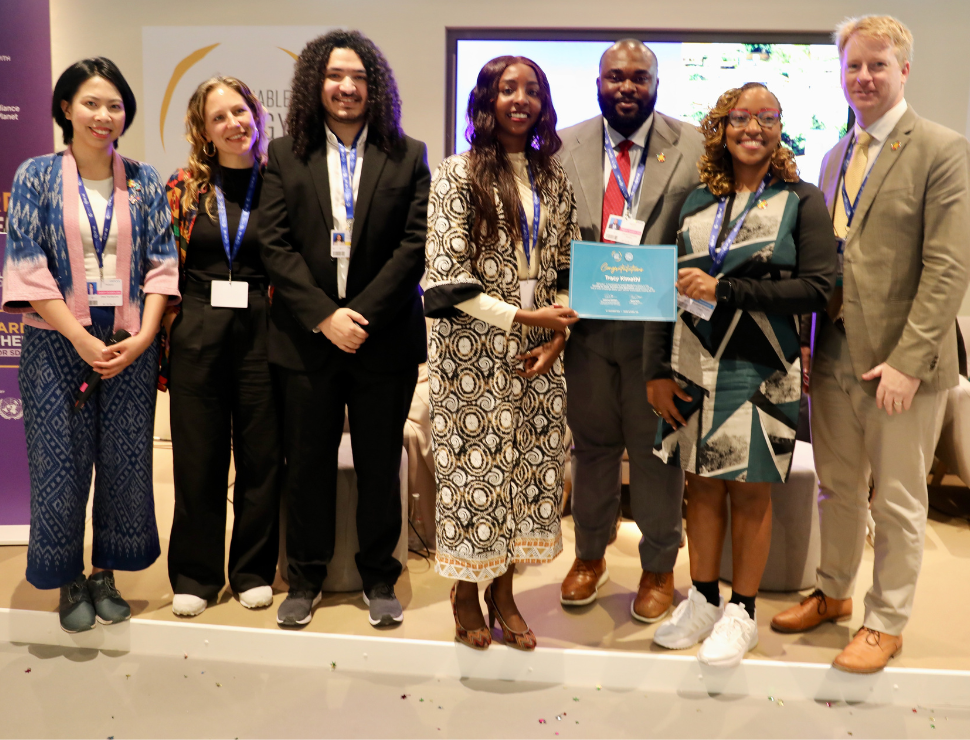 Photo by Sustainable Energy for All (SEforALL)
Photo by Sustainable Energy for All (SEforALL)
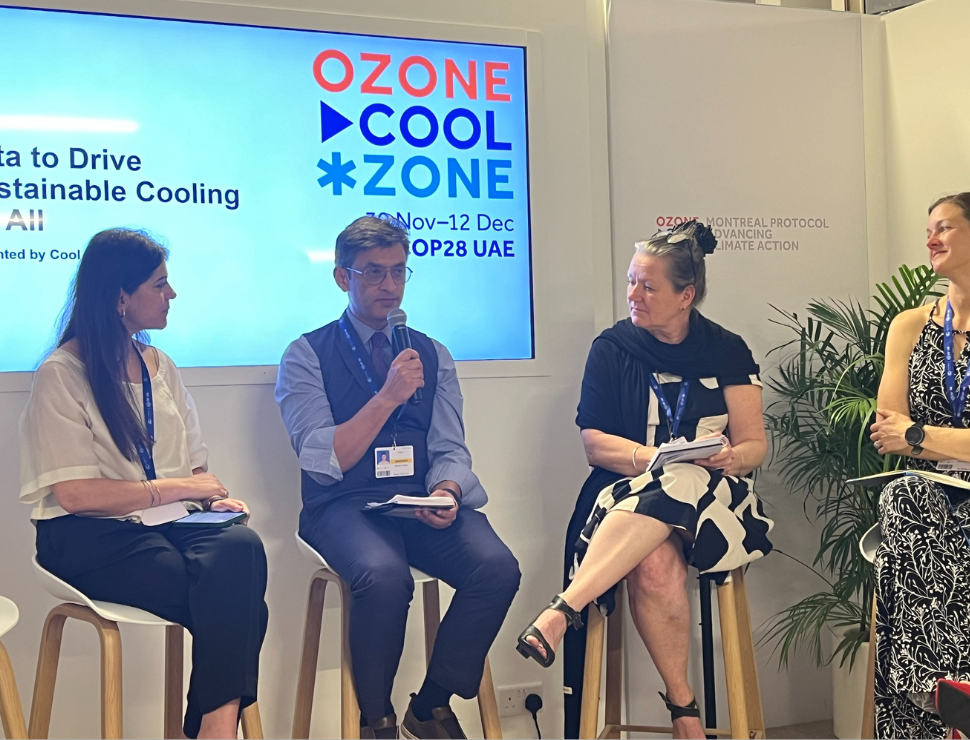
Just Energy Transition
In an official UN side event, CLASP, Climate Action Network, and Friedrich-Ebert-Stiftung spotlighted the urgent need for efficient appliance solutions in a just energy transition. CLASP Senior Director Ana Maria Carreño joined colleagues at the Malaysia Pavilion for “Net Zero Heroes: The Efficient Appliances Helping Cities Mitigate & Adapt to Climate Change,” illustrating how cities are climate mitigation leaders, leading their nations in the implementation of climate solutions. Partners included ASEAN Centre for Energy, Climate Action Network- Southeast Asia and UN-Habitat.
CLASP Senior Director Ana Maria Carreño and colleagues at the Malaysia Pavilion event “Net Zero Heroes: The Efficient Appliances Helping Cities Mitigate & Adapt to Climate Change.”
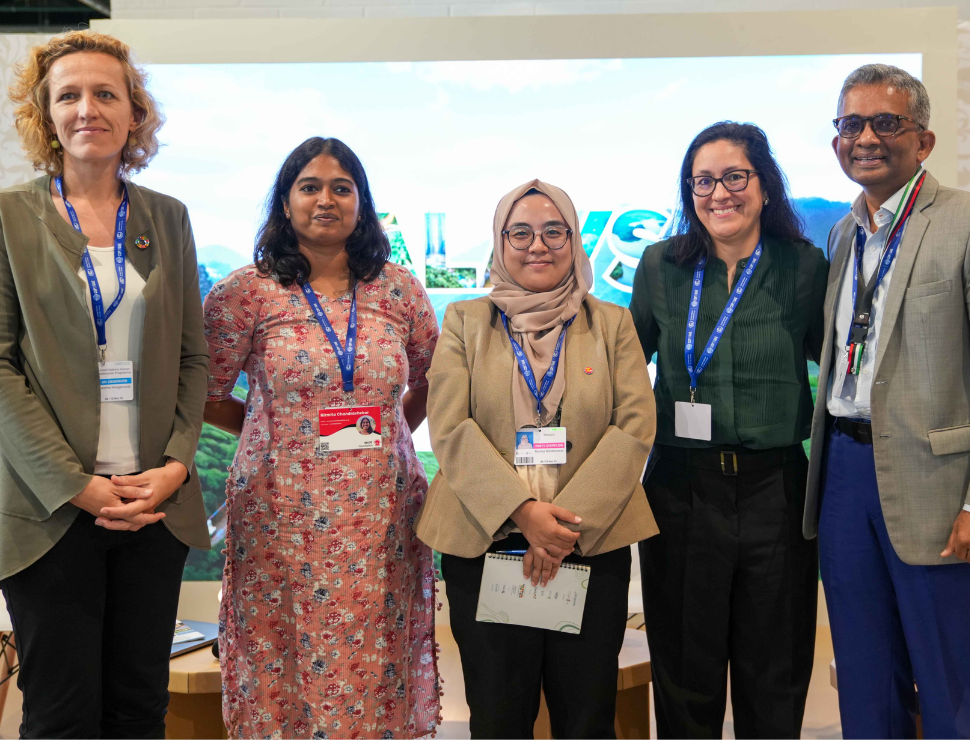
Energy Efficiency
Energy efficiency finally earned its moment as a low-cost and highly effective mitigation solution. In a historic move, the official Convention text now includes, for the first time, a global goal of doubling energy efficiency. These text additions align with recommendations from CLASP’s Net Zero Heroes report, which identifies 10 appliances crucial for promoting climate mitigation, adaptation, and resilience.
CLASP CEO, Christine Egan, joined representatives from the Business Council for Sustainable Energy, Edison Electric Institute, Mission Efficiency, and Sustainable Energy for All at a press conference on the Mission Efficiency call to action and pledges. Mission Efficiency urges Parties to the Paris Agreement to commit to more than doubling the rate of energy efficiency improvements annually by 2030. Additionally, CLASP Manager, Lauren Boucher, participated in the “Reflecting Product Energy Efficiency in Sub-Saharan African Countries’ NDCs” event by the International Energy Agency (IEA). She highlighted CLASP’s report, “Getting Appliances Back on Track,” which tracks the progress of 15 countries that pledged to double the energy efficiency of four product categories by 2030 through the SEAD Initiative’s COP26 Call to Action.
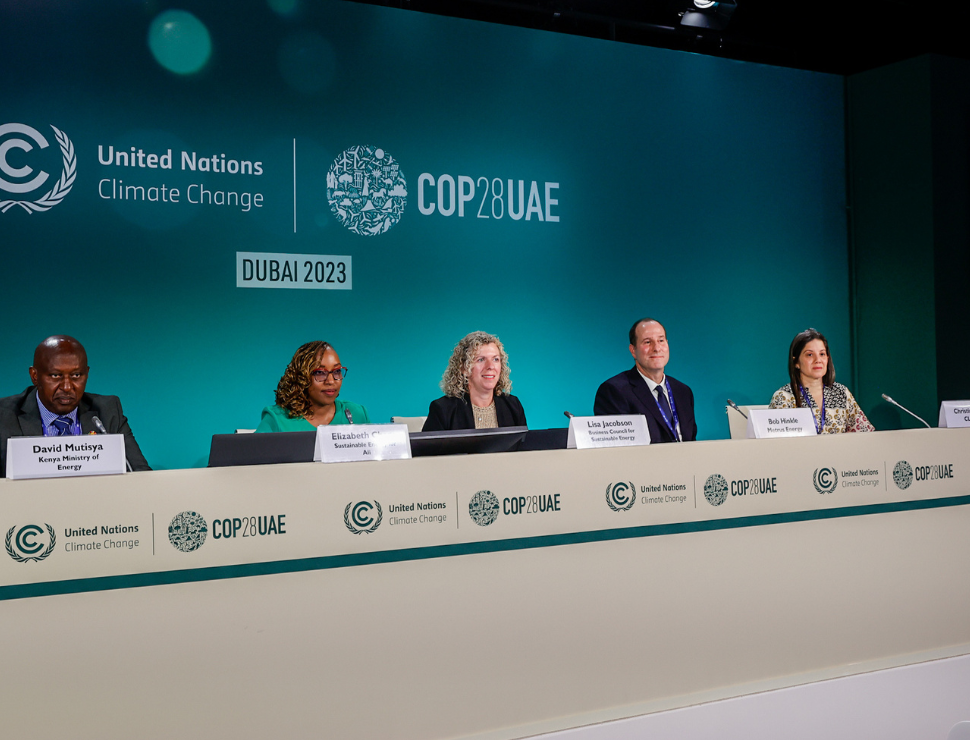 Photo by Business Council for Sustainable Energy
Photo by Business Council for Sustainable Energy
 Photo by the International Energy Agency (IEA)
Photo by the International Energy Agency (IEA)
Agreements made at COP28 are on the right track. CLASP and our partners have the solutions to propel leaders to action. The targets in CLASP’s Net Zero Heroes report lay out critical moves. We must prioritize efficient appliances now, and our work is just getting started.
Let’s be #NetZeroHeroes together.
0. Ethiopia – Country Commercial Guide; https://www.trade.gov/country-commercial-guides/ethiopia-agro-processing
Find CLASP at COP28 in Dubai, UAE
As the window to address climate change is narrowing, COP28 presents a unique opportunity for leaders to supercharge their efforts in appliance efficiency. CLASP’s recent landmark publication, Net Zero Heroes, reveals that appliances account for nearly 40% of energy-related CO2 emissions and must play a crucial role in climate mitigation. We’ve identified ten appliances, the Net Zero Heroes, capable of setting us back on track to reach global Net Zero goals in 2050, while simultaneously improving life quality and resilience in climate-vulnerable regions.
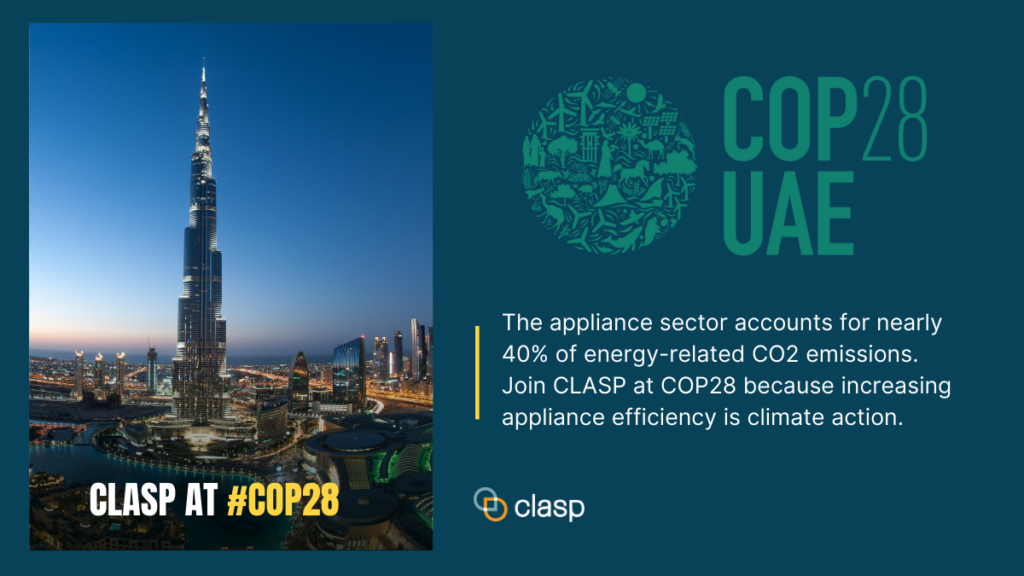
Seven CLASP team members spanning three offices—Washington DC, Nairobi, and New Delhi—will be attending COP28 in Dubai.
CLASP is hosting three Official Side Events: one on preventing inefficient appliance dumping, the second is with Climate Action South East Asia to showcase findings from our Net Zero Heroes paper, and the third is how the Net Zero Heroes can support cities in emissions reduction and adaptation.
Members of the CLASP delegation will participate in panel discussions and presentations across the COP, elevating the crucial role of the Net Zero Heroes in confronting the climate crisis and contributing to the global discourse on climate change mitigation, adaptation, and resilience.
See where our team will be and join us to move the needle on appliance efficiency!
CLASP will be at the following events
| Location | Event | Host | |
|---|---|---|---|
| Saturday 2 Dec 11.00 - 11.50 | The Saudi Pavilion at COP28 (Blue Zone) | Large Scale Deployment of Super-Efficient Appliances for Cooling and Doubling of Efficiency Progress | The Super-Efficient Equipment and Appliance Deployment (SEAD) Initiative |
| Saturday 2 Dec 12.00 - 13.00 | Montreal Protocol Pavilion | Data to Drive Sustainable Cooling for All | United Nations Environment Programme, UNEP-led Cool Coalition, and Sustainable Energy for All |
| Saturday 2 Dec 14.00 - 15.00 | NDC Pavilion, Blue Zone, Thematic Arena 3 | Reflecting Product Energy Efficiency in Sub-Saharan African Countries’ NDCs | UNIDO, the IEA, and SEA |
| Saturday 2 Dec 16.30 - 17.30 | Montreal Pavillion | Pathways to Prevent the Dumping of Inefficient Appliances with Obsolete Refrigerants | CLASP |
| Sunday 3 Dec 14:00-15:00 | Global Climate Action Hub, Blue Zone | COP28 Implementation Lab Enabling Private Finance for Adaptation | |
| Sunday 3 Dec Time TBC | COP28 Center for Climate and Energy Solutions (C2ES) event @ UNFCC | Enabling Private Finance and Investment for Adaptation (Official Side Event) | Center for Climate and Energy Solutions (C2ES) |
| Monday Dec 4 09:00-10:15 | China Pavilion, Blue Zone | Improving Quality and Efficiency, Energy Conservation and Emission Reduction - Choosing a Green Development Path for Enterprises | China Energy Conservation Association |
| Monday 4 Dec 17.30 - 19.00 | Marriott Resort Palm Jumeirah, Dubai | Empowering Policymakers to Meet the Climate Challenge | Crux Alliance |
| Tuesday 5 Dec 8.30 - 10.30 | Crescent Room, Fairmont the Palm Hotel | Mission Efficiency Call to Action Roundtable | Business Council for Sustainable Energy |
| Tuesday 5 Dec 11.45 - 13.15 | India Pavilion | Advancing Energy Efficiency to support Global Energy Transition | The Bureau of Energy Efficiency of India, Alliance for an Energy Efficient Economy (AEEE), and the International Energy Agency (IEA) |
| Wednesday 6 Dec 09.00 - 10.30 | Monash University Pavilion Thematic Arena 1: TA1-100 | Roundtable: How to implement policies for decarbonizing built environments at speed and scale; Examples from India and Indonesia | Global Buildings Performance Network |
| Wednesday 6 Dec 14:30 - 15:30 | Monash University Pavilion Thematic Arena 1: TA1-100 | Roundtable: How do we make sure buildings and cities perform? Commitments, Achievements & Accountability | United Nations Environment Programme (UNEP) and US Green Building Council (USGBC) |
| Friday 8 Dec 12.25-13:45 | SE Room 8 | Official UNFCCC Side Event: How Energy Efficiency is Critical to a Just Transition in Cities | CLASP and Climate Action Network Southeast Asia (CAN-SEA) |
| Friday 8 Dec 15:30-16:15 | Malaysia Pavilion | Net Zero Heroes: The Efficient Appliances Helping Cities Mitigate & Adapt to Climate Change | Malaysian Ministry of Natural Resources, Environment and Climate Change, coordinated by CLASP |
| Friday 8 Dec 16.00 - 17.00 | SDG 7 & Global South Pavilion | This Is Cool Challenge Grand Final | Sustainable Energy For All (SEforAll) |
| Sunday 10 Dec 09:00-10:00 | SDG7 & Global South Pavilion Pavillion | Improving rural livelihoods with efficient cold chain and cooling appliances | Sustainable Energy For All (SEforAll) |
For questions or additional speaking opportunities, please contact Corinne Schneider (cschneider[at]clasp.ngo) and Lisa Kahuthu (lkahuthu[at]clasp.ngo).
0. Ethiopia – Country Commercial Guide; https://www.trade.gov/country-commercial-guides/ethiopia-agro-processing
Applications are Open! Scaling the Sales of Clean Cooking in Uganda
Currently, less than 5% of Uganda has access to clean cooking. Modern, energy-efficient cooking can have significant health, economic, gender, and quality of life benefits for people and communities. CLASP is working to help higher-tier cookstove companies in Uganda scale the sales of affordable, cleaner and modern cooking equipment through the Higher Tier Cooking Component (HTCC) Results Based Financing (RBF)
Strengthening supply for small and medium-sized enterprises
The program aims to strengthen the supply side of the clean cooking sector by supporting small and medium-sized enterprises with access to finance for upscaling, innovation and increasing affordability of higher-tier cookstoves in Uganda. The program works by supporting small and medium-sized enterprises to improve their business operations and access to finance.
Eligible companies include manufacturers and distributors of e-cooking (electric pressure cookers and electric induction stoves) and higher tier (3-5) biomass stoves.
“In a market-based approach, results-based finance has proven to be a useful tool for de-risking companies and rewarding actions that go beyond business as usual. This is essential to move higher-tier clean cooking at a pace needed to reach global SDG-targets by 2030.” said Marnix (C.A.) van Holland, Advisor at Netherlands Enterprise Agency (RVO).
How to take part
Interested companies should send in their applications by the end of the day on 1 February 2024. Please check out these resources to learn more about the program, including eligibility requirements of the procurement subsidy auction window and how to submit a subsidy request. For any other questions, please get in touch with financing@clasp.ngo.
Watch a recording of our recent informational session on the program to learn more about the opportunity and company eligibility.
The HTCC Uganda RBF is administered by CLASP in partnership with GIZ Uganda with support from the Netherlands Enterprise Agency (RVO). Eligible companies can also apply for business development support training and mentorship implemented through the Energy Enterprise Coach (EEC) program which is administered by NIRAS. The procurement subsidies and the business development support are intended to help companies expand their reach and cater to a broader market, helping to deliver essential energy-efficient cooking products to more consumers in Uganda.
“Uganda is poised to be a leader in the Clean Cooking sector,” commented Sam Grant, Senior Director of Clean Energy Access at CLASP. “The HTCC program will play a vital role in supporting local businesses to ramp up their e-Cooking cooking equipment sales.”
Subscribe to our newsletter for more updates on the Uganda RBF Program.
0. Ethiopia – Country Commercial Guide; https://www.trade.gov/country-commercial-guides/ethiopia-agro-processing
Net Zero Heroes Event: The Essential Appliances for Climate Action
On 28 November 2023, CLASP hosted a virtual launch of the landmark publication ‘Net Zero Heroes: Scaling Efficient Appliances for Climate Change Mitigation, Adaptation & Resilience’. The event showcased how ten essential appliances, the #NetZeroHeroes, are crucial for achieving global climate objectives and advancing climate adaptation and resilience efforts.
Net Zero Heroes Webinar: The Essential Appliances for Climate Action
Watch the recording to hear inspirational case studies and powerful data that prove the effectiveness and scalability of affordable, efficient appliance solutions. The Net Zero Heroes flagship report is launched ahead of the 2023 United Nations Climate Change Conference Conference (COP28) to be held in Dubai, United Arab Emirates (30 November-12 December 2023).
Event speakers
Our event featured a diverse group of experts who shared their insights and experiences in the world of energy efficiency, climate action, and appliance innovation.
- Axum Teferra – Clean Cooling Collaborative
- Christine Eibs Singer – Shine Campaign
- Christine Egan – CLASP
- Duncan Gibb – Regulatory Assistance Project (RAP)
- Oliver-Bealby Wright – Consumers International
The event was moderated by Joyita Mukherjee, a CLASP board member and expert in international development and blended finance.
Follow our #NetZeroHeroes digital campaign on social media.
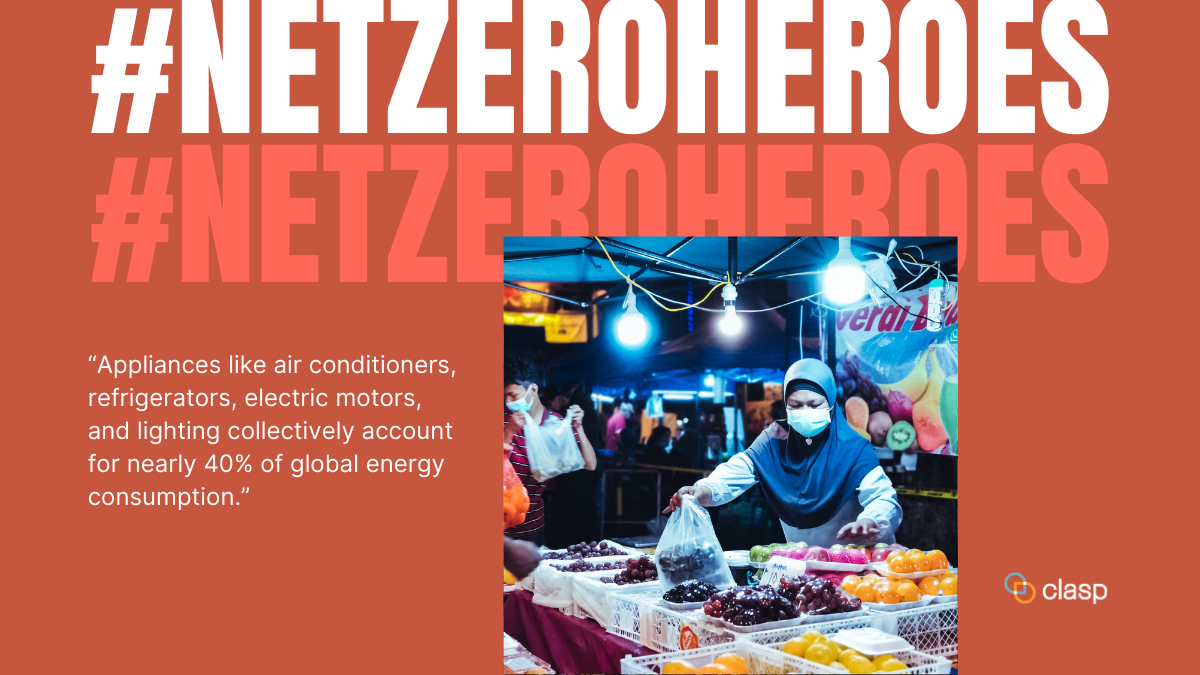
CLASP's Net Zero Heroes Air Conditioners, Comfort Fans, Refrigerator-Freezers, Heat Pump Space & Water Heaters, Electric Motors, Electric Cookers, Televisions, Solar Water Pumps
0. Ethiopia – Country Commercial Guide; https://www.trade.gov/country-commercial-guides/ethiopia-agro-processing

